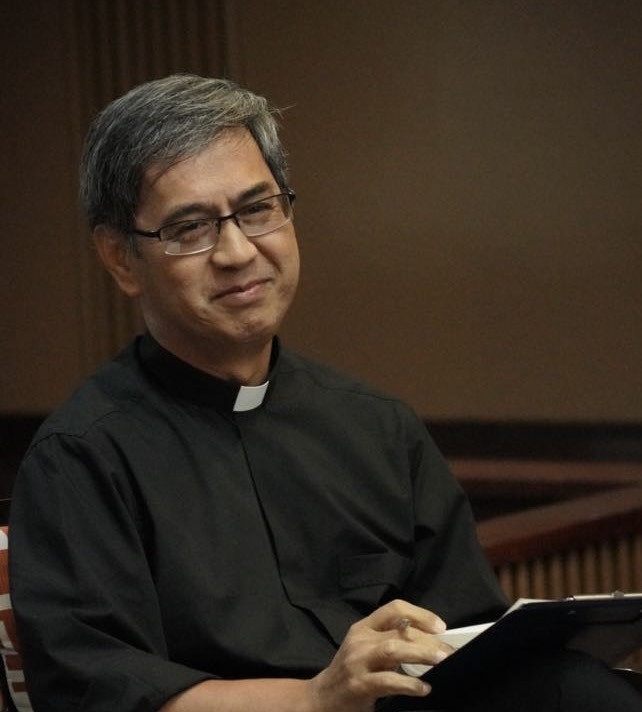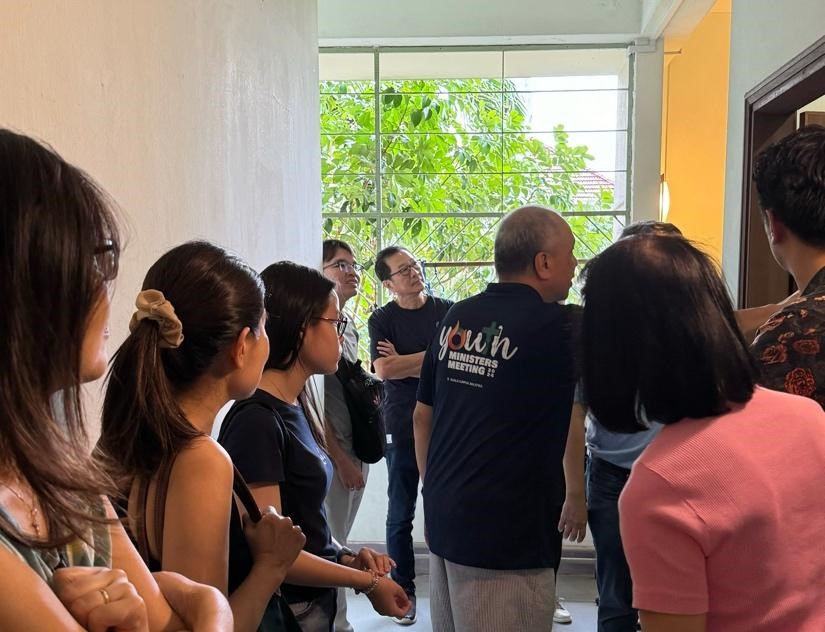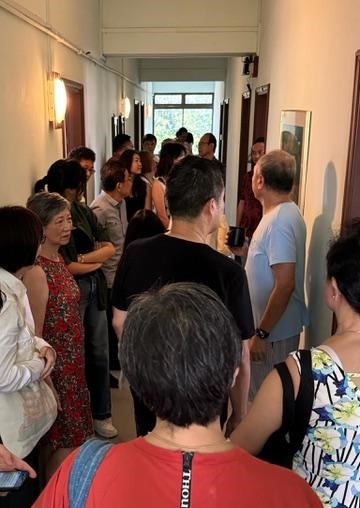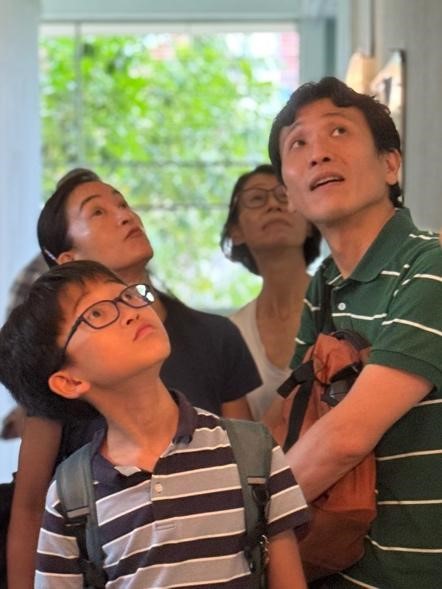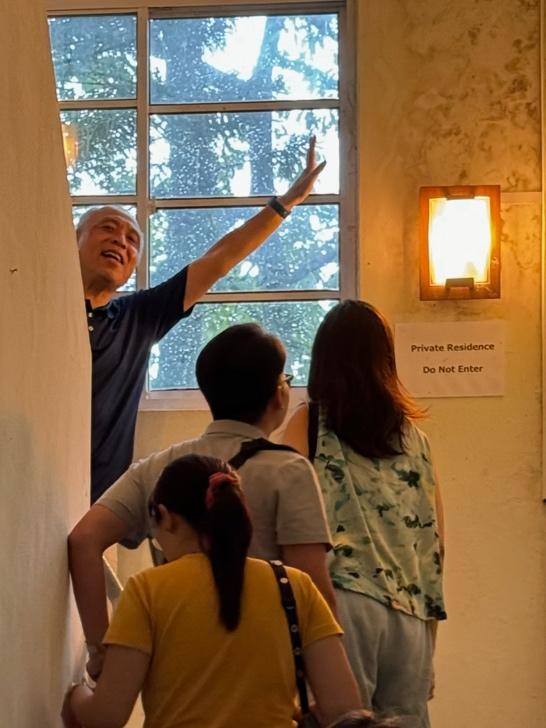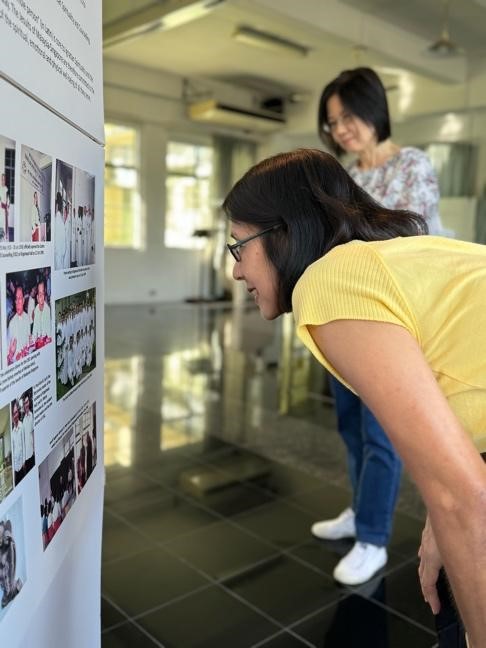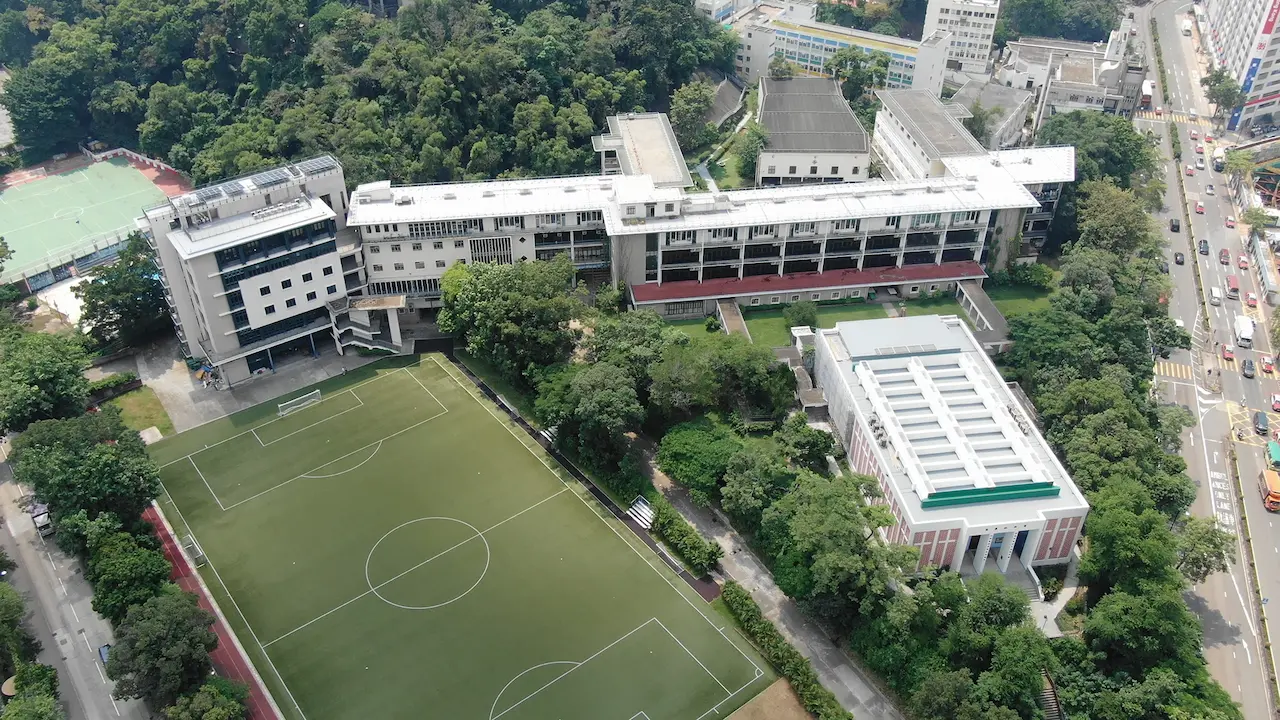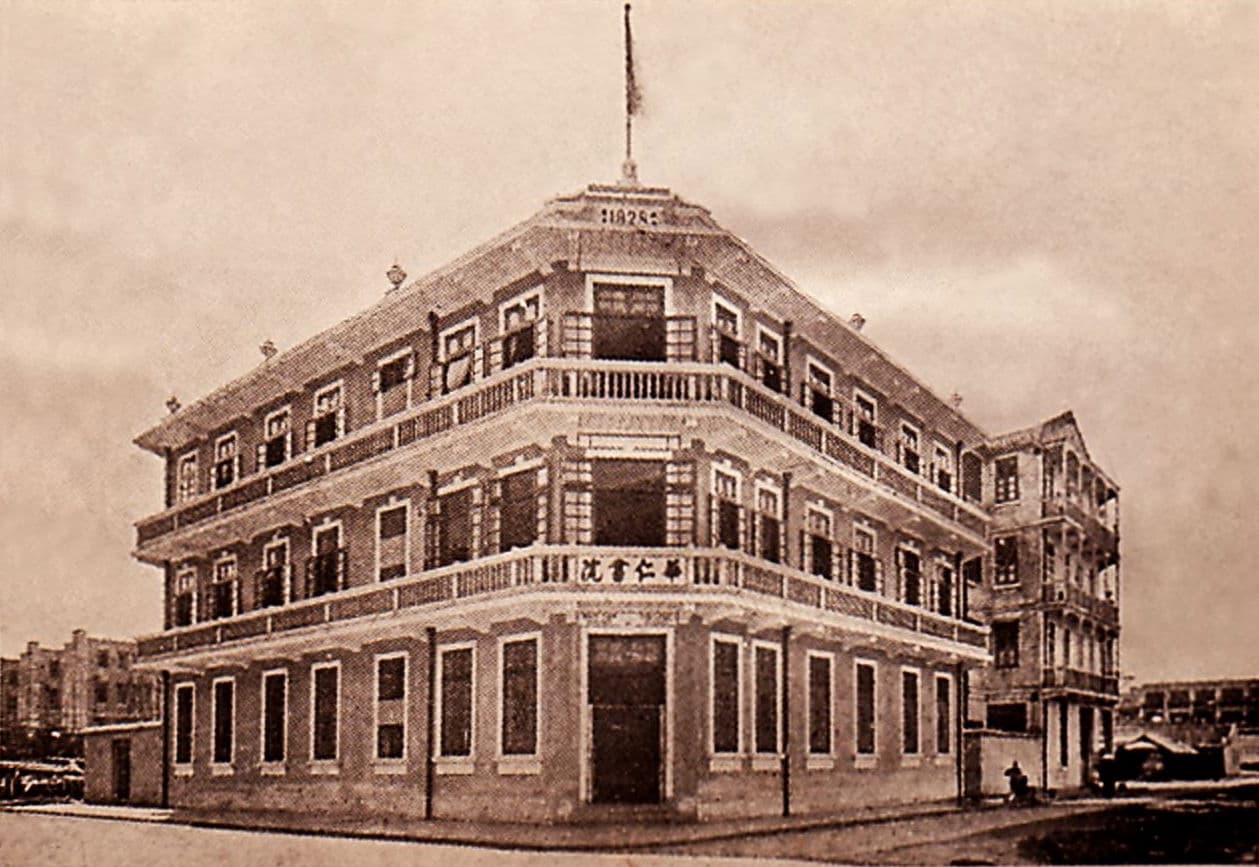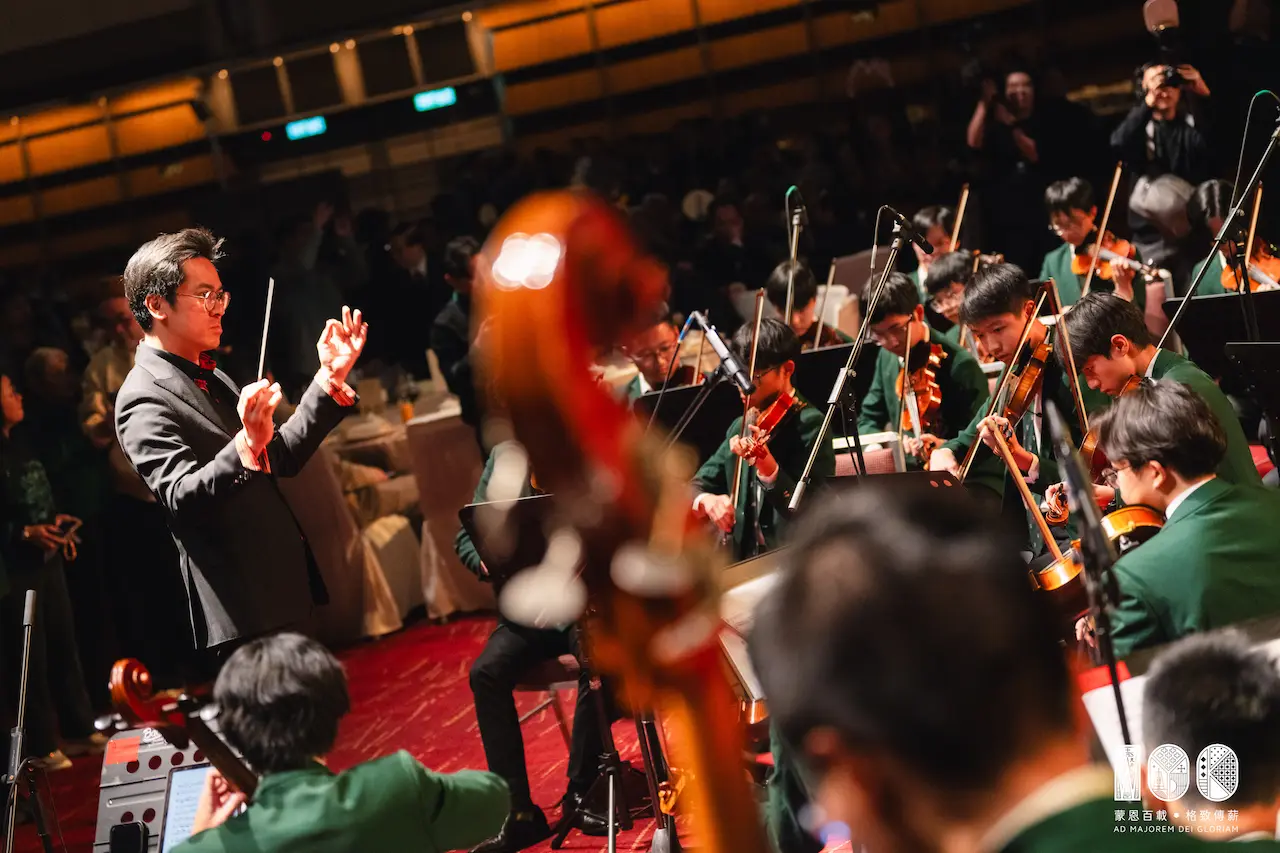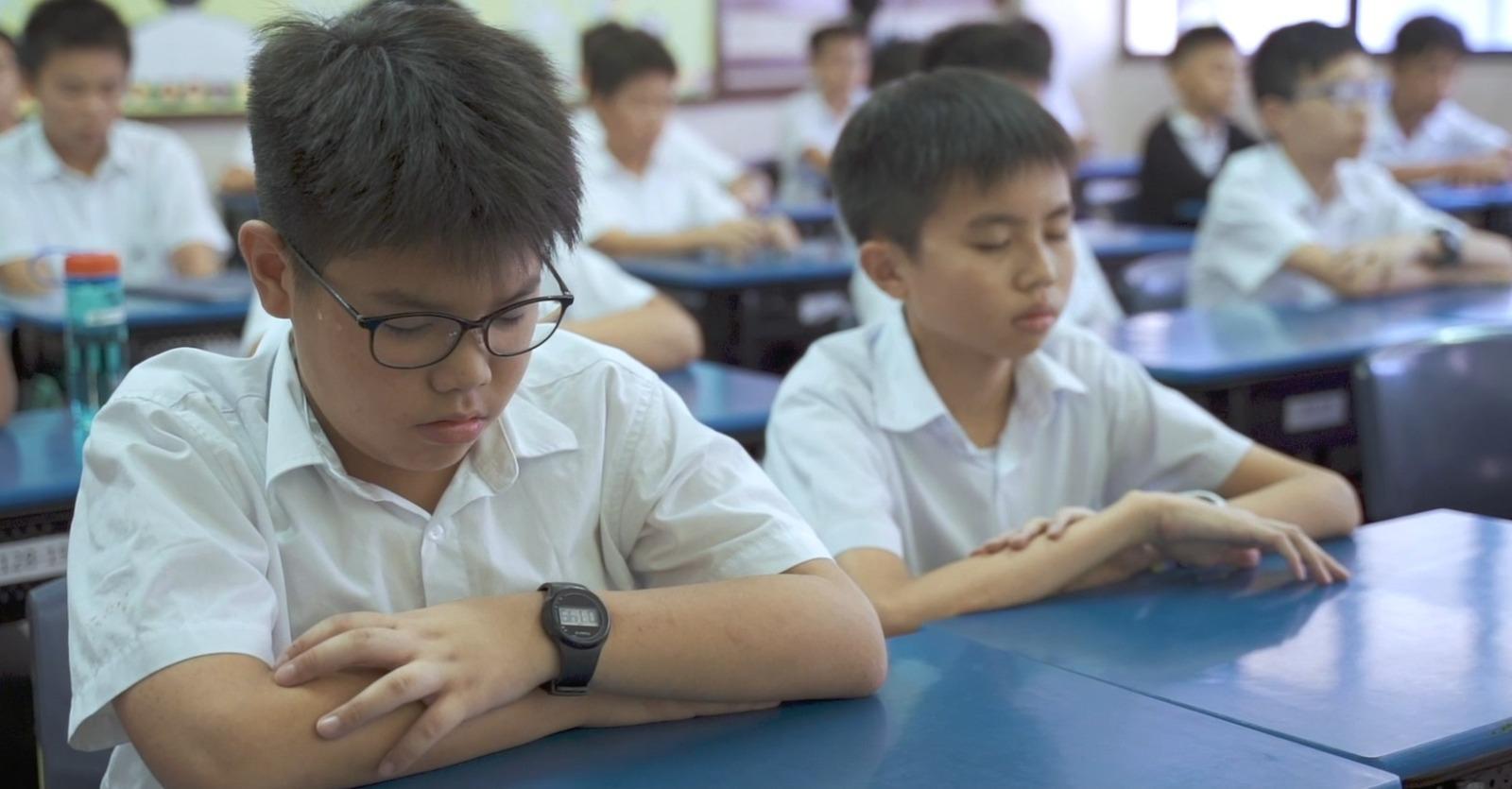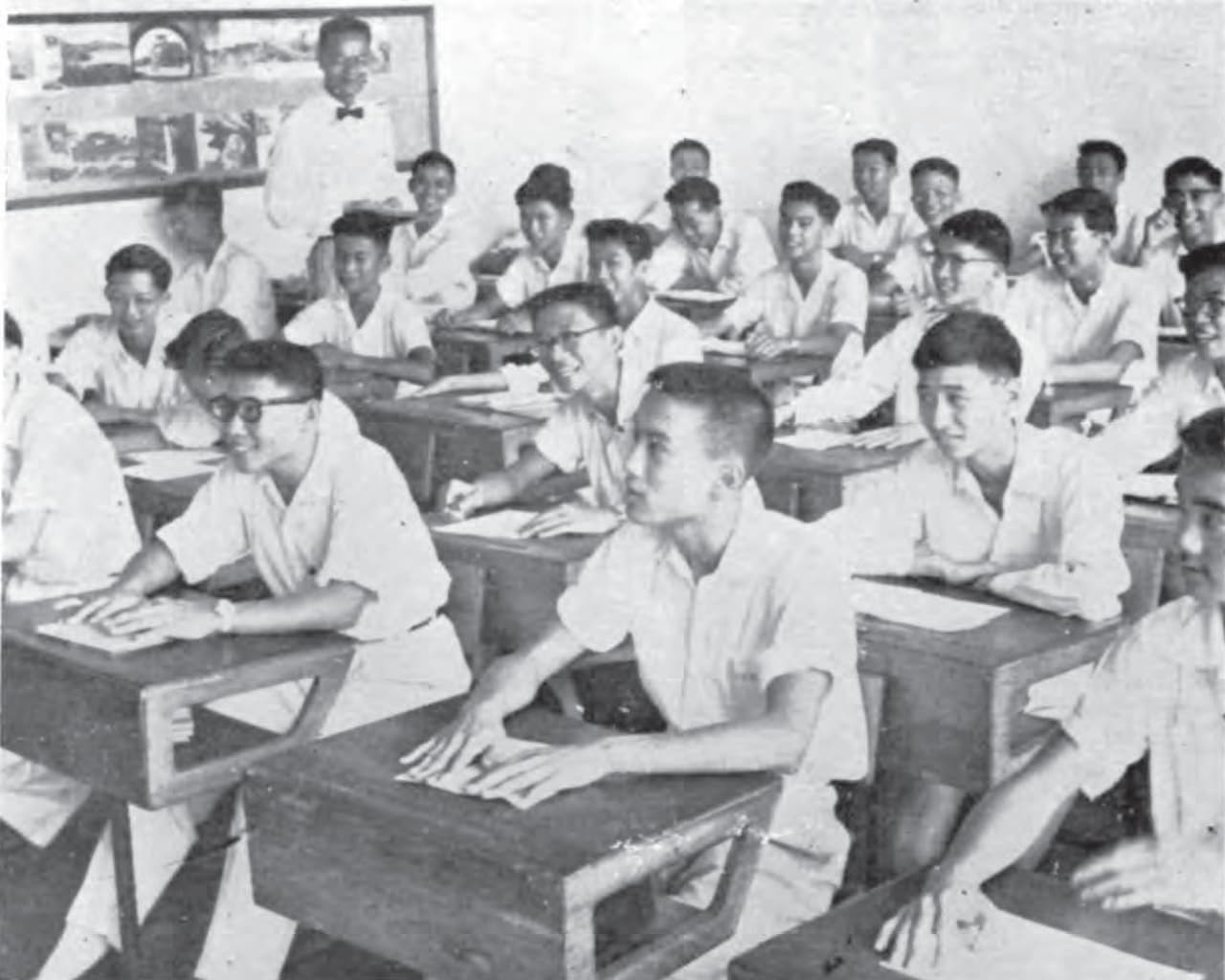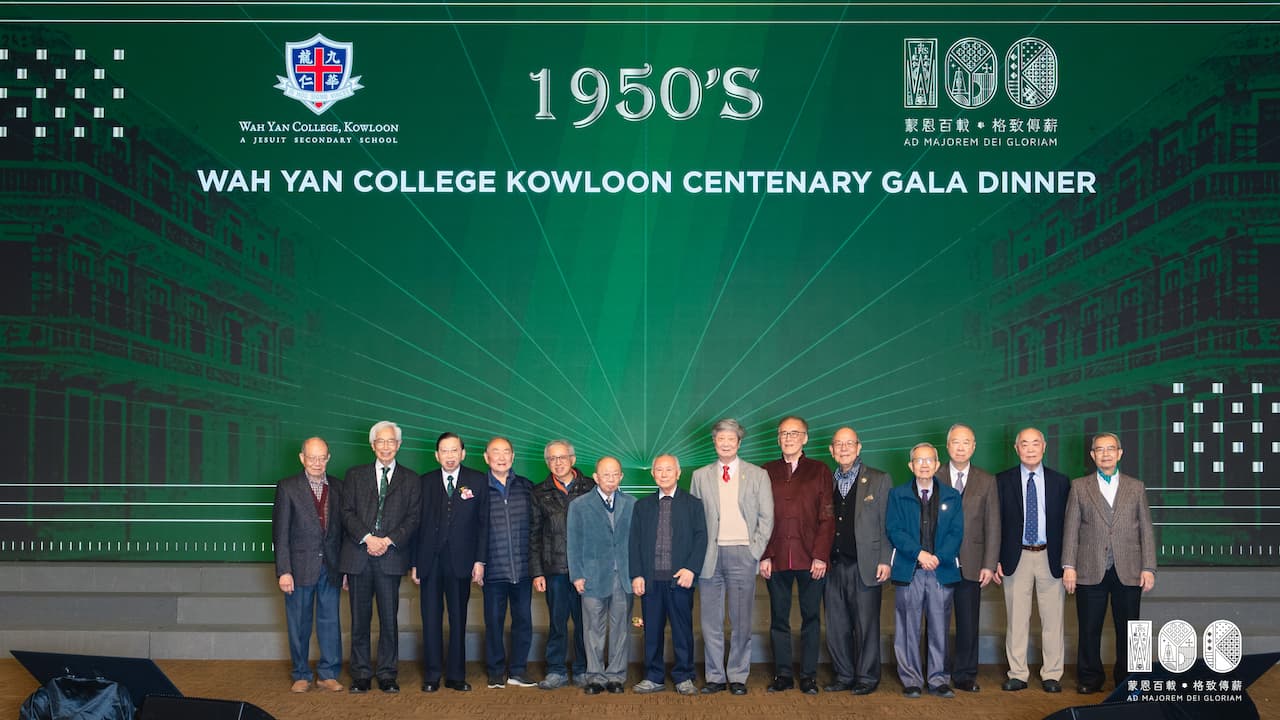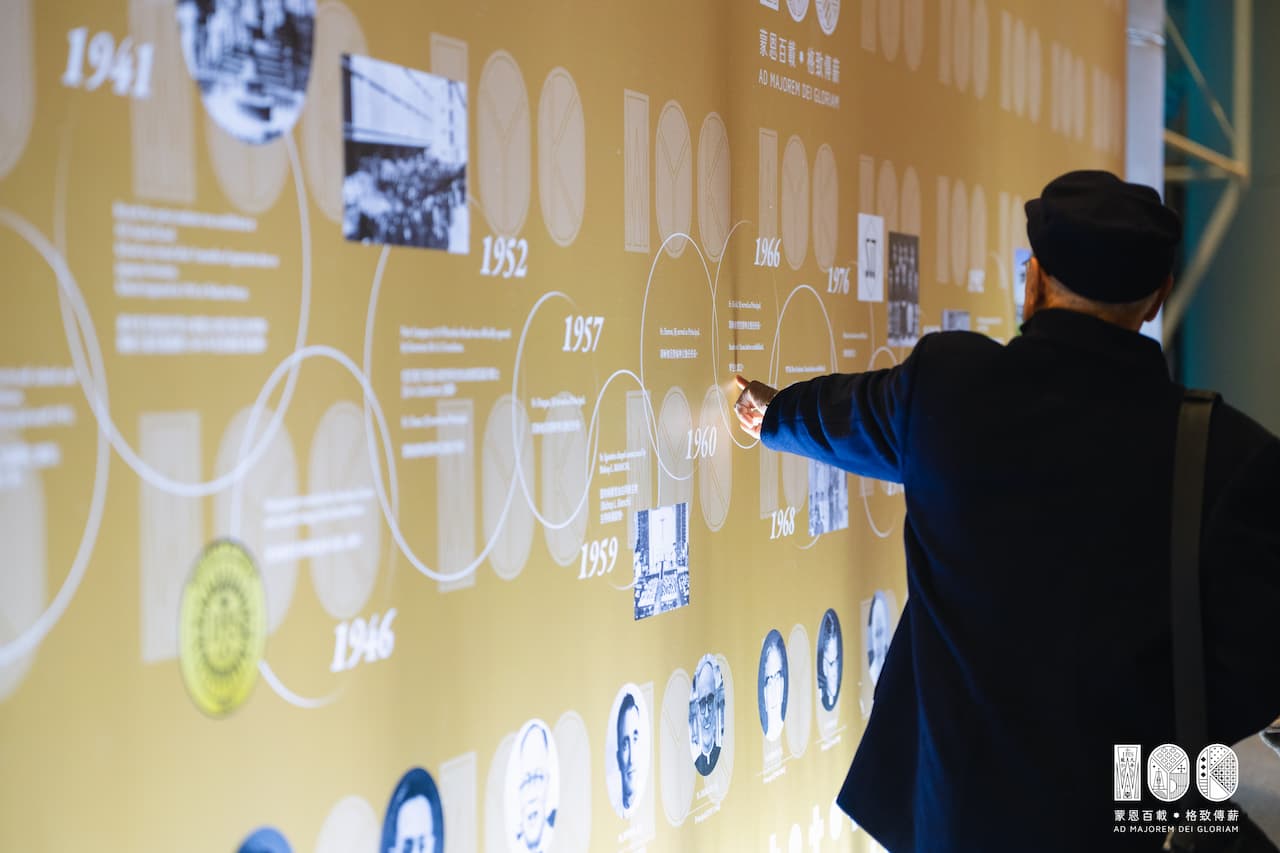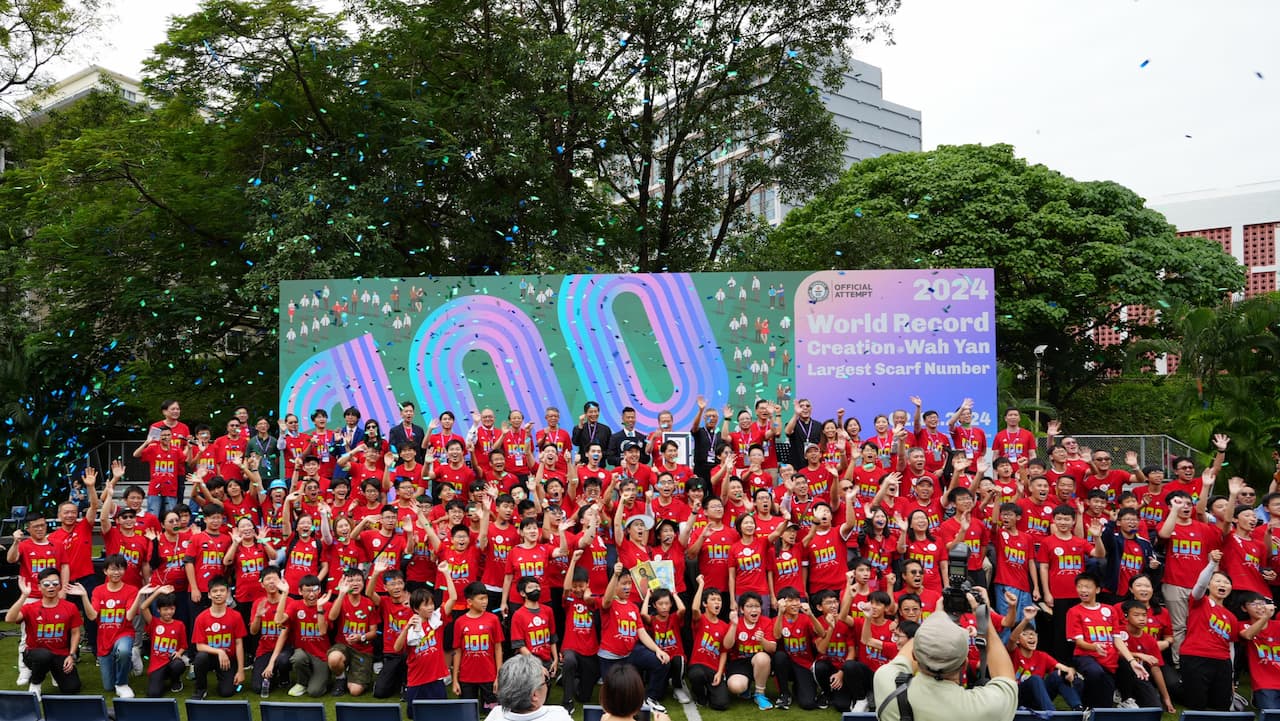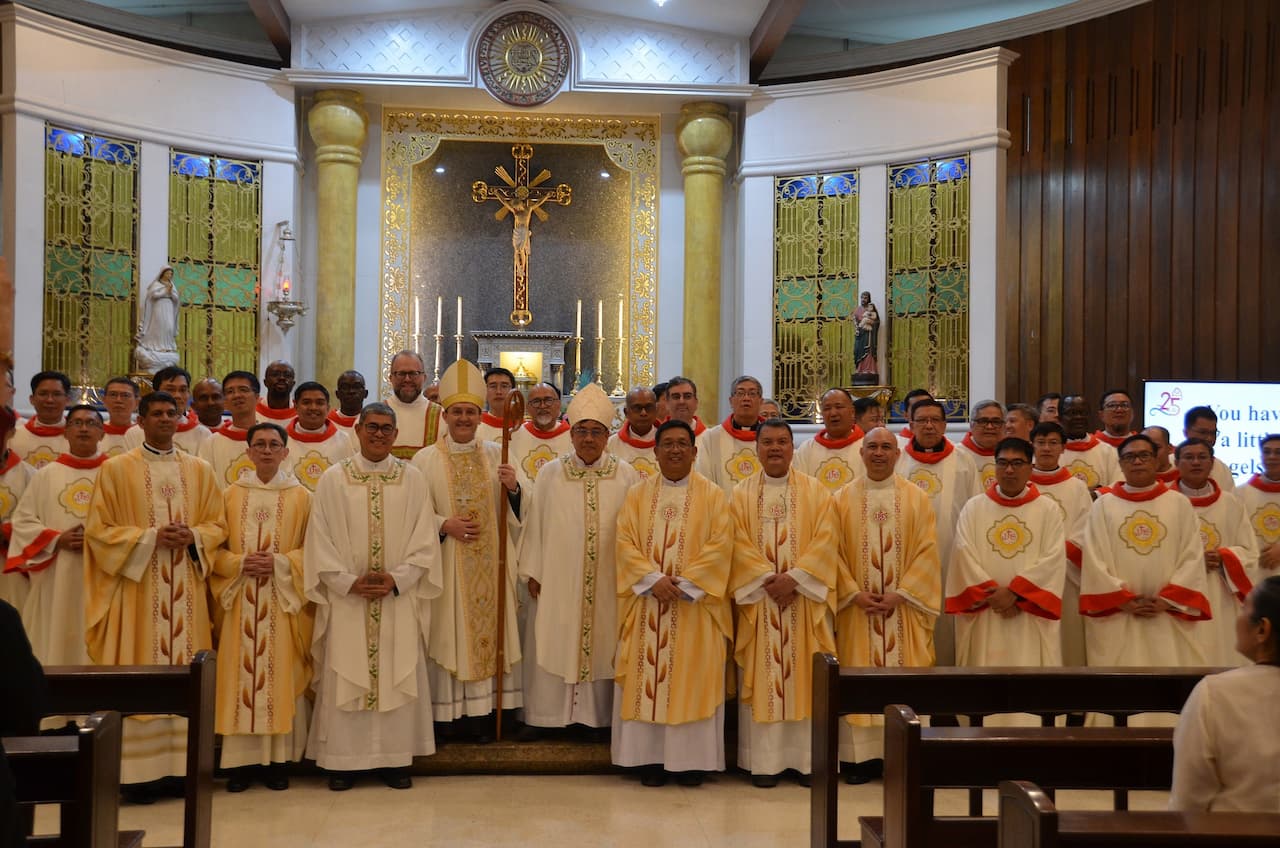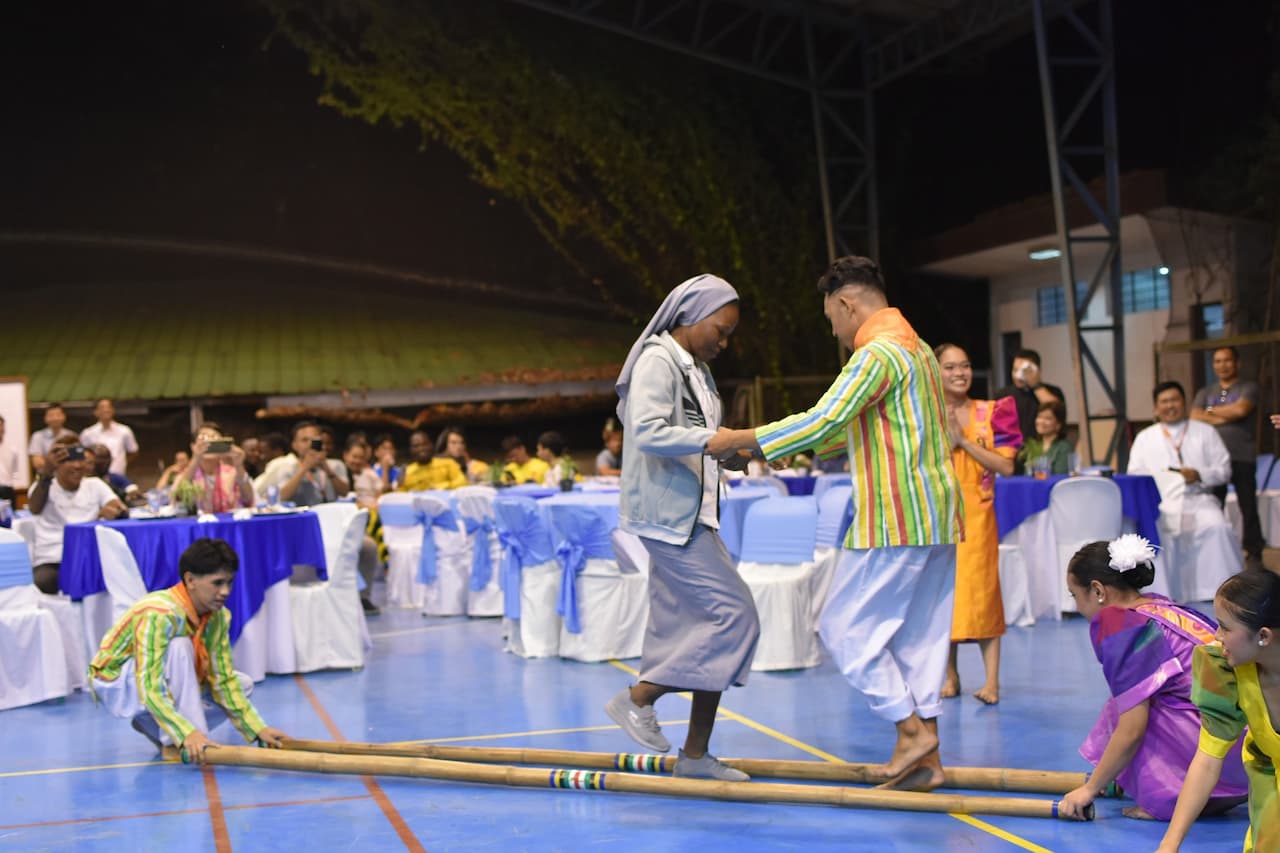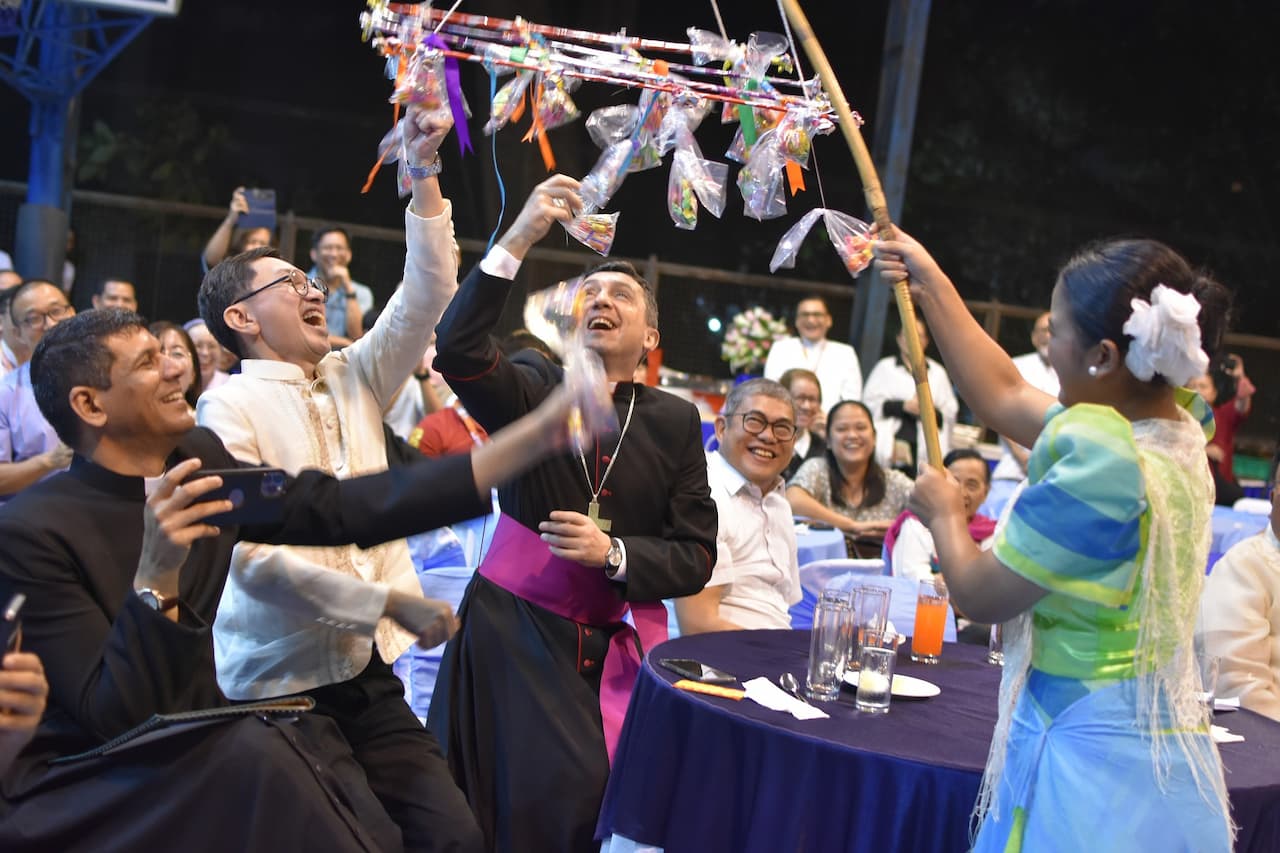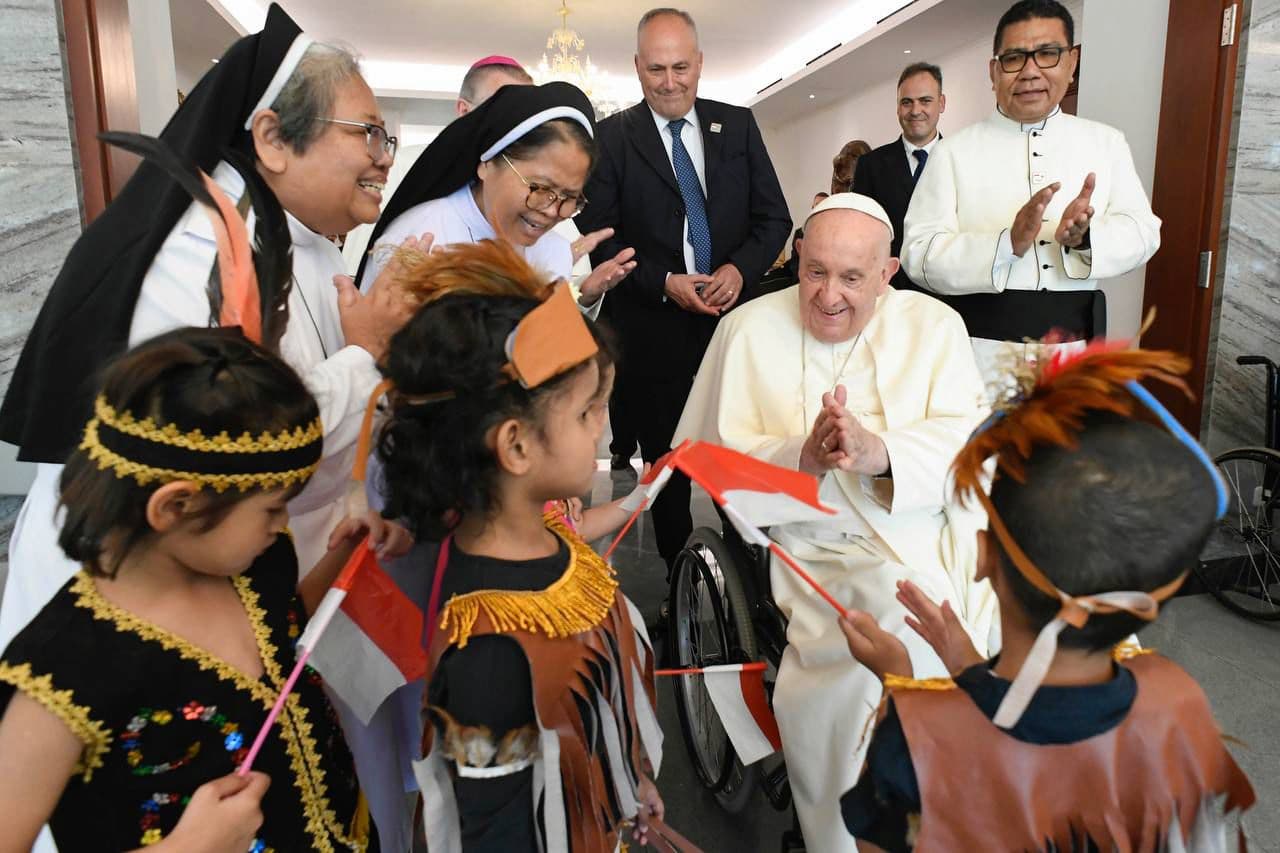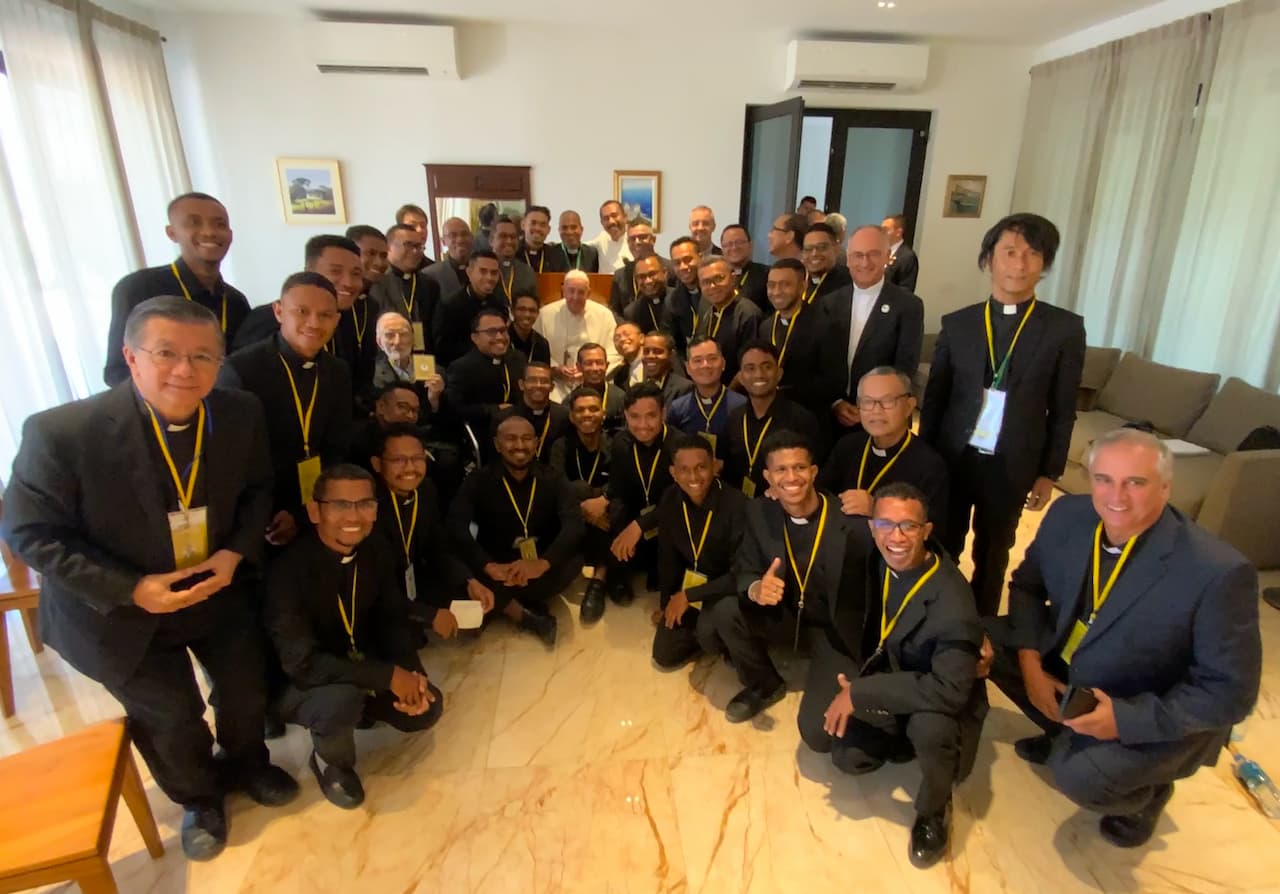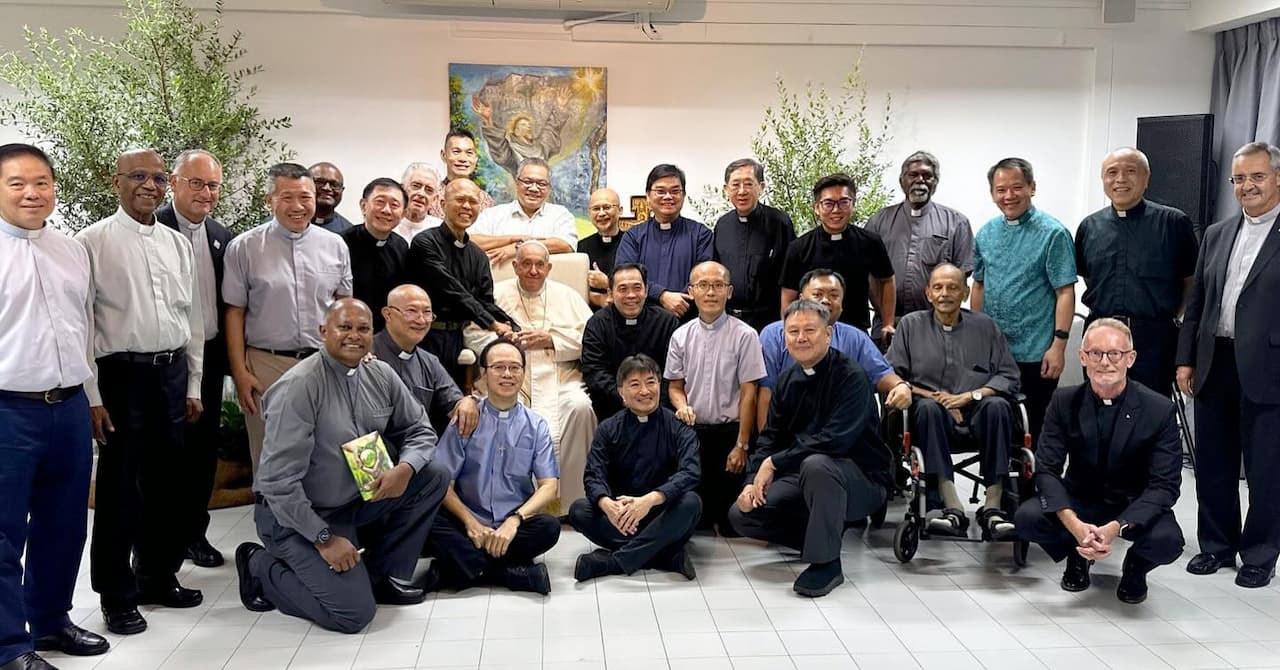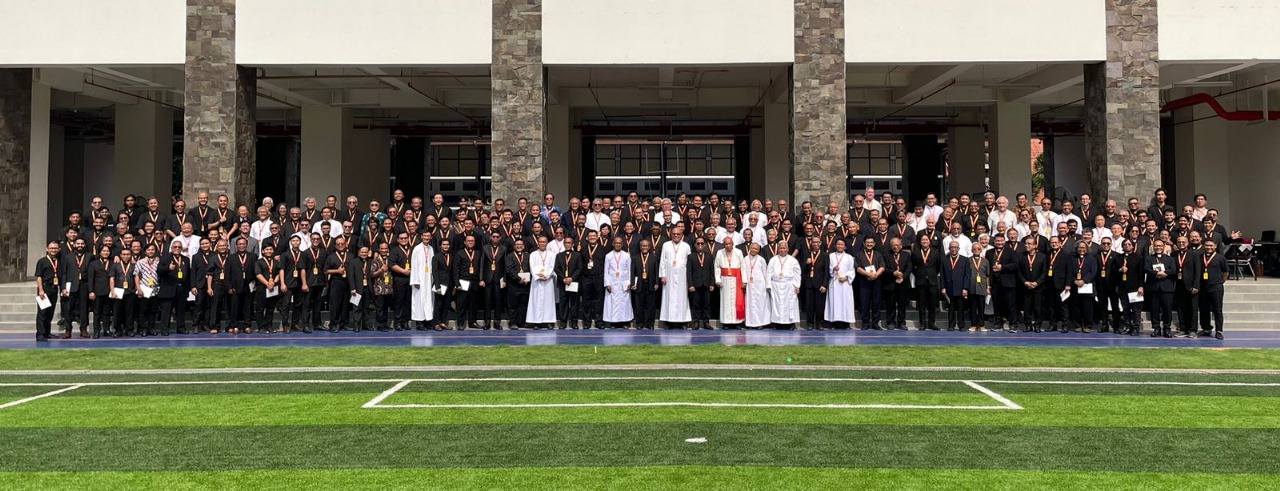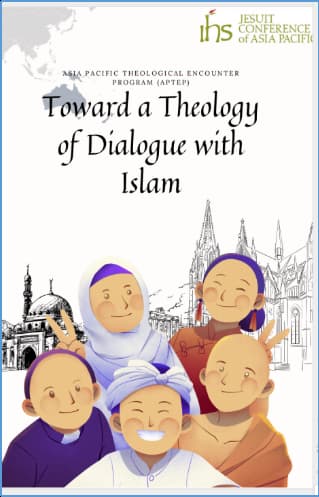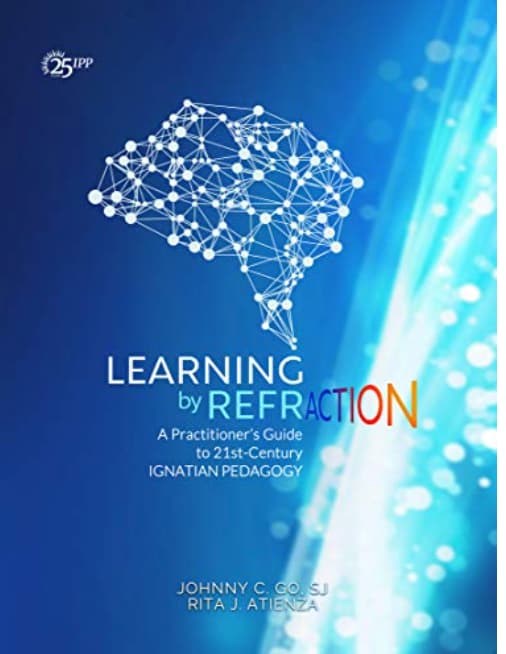The Jesuits in Asia Pacific 2025
Moving Forward as Pilgrims of Hope
“For in hope we were saved. Now hope that sees for itself is not hope. For who hopes for what one sees? But if we hope for what we do not see, we wait with endurance. (Romans 8: 24-25)”
Chapter Two of the De Statu Societatis (DSS) reminds us of some of the epochal changes in the world that challenge the mission of the Church. Among these epochal changes are the
- enormous and growing number of forced migrants,
- fast-paced globalisation with the growth of media ecosystem and communication technologies and artificial intelligence,
- the exploitation of natural resources impacting on the planet’s fragile ecological balance,
- the impressive demographic leap in human population leading to crowded cities and marked by increasing inequality,
- religious and ideological-political fundamentalisms and democratic backsliding towards more authoritarian regimes.
These epochal changes continue to serve as the material for a discernment in common on how we can carry out our mission of evangelisation. In response to these complex challenges, the various JCAP ministries have found ways—however modest—to be beacons of light and hope.
Let me cite just two examples from our conference. First, I joined the Migrant and Refugees Network when they met in March in Taipei to discern together their apostolic plan and give special focus to Myanmar. They spent time in better understanding the situation of migrants and refugees through exposure and engagement in some refugee centres in Taiwan. It was also an opportune time for supporting and strengthening each other in this challenging mission. During this time, it was a joy to witness their professionalism, dedication, and love in finding concrete ways to address the numerous migrant and refugee challenges in their respective countries and in Myanmar.
Second, in August, I participated in the Young Adults Ministry meeting in Kuala Lumpur where representatives from the different provinces and regions came to discern together for future programmes and activities. I was very much moved while listening to the various reports detailing the successes and challenges in their work of accompanying the youth. Their reports detailed well-thought-out Ignatian programmes for young people, helping them grow in faith and service to others. The meeting could not hide the joy, enthusiasm, and energy of these youth organisers coming together to support each other in what they considered a challenging and yet very fulfilling mission! Listening to and engaging our youth ministers impressed on me a palpable sense of hope for the future even in many areas where the Christian faith was the minority.
These are but two examples among many in the various JCAP works that include concern for the environment, indigenous peoples, social apostolate, formation of Jesuits, Ignatian spirituality, safeguarding, basic and higher education, etc. Other supportive works include the Development officers, Communication, Archivists, and Treasurers that are equally important in responding to epochal changes. In their own ways, I also saw the deep commitment and passion of Jesuits and lay collaborators in carrying out their ministries, giving hope to a much-challenged world. No matter how small our initiatives can be, these bring sparks of light and hope to others.
At the end of the day, it is sobering and consoling to be reminded by the Holy Father in his declaration of the Jubilee Year of Hope that we are called to be “Pilgrims of Hope” and that the hope we hold on to does not disappoint because it is anchored in the person of Jesus Christ. In a similar vein, the Constitutions of the Society of Jesus, 812, also remind us of this:
“The Society of Jesus was not instituted by human means; and neither is it through them that it can be preserved and developed, but through the omnipotent hand of Christ Our God and Lord. Therefore, IN HIM ALONE must be placed THE HOPE that he will preserve and carry forward what he deigned to begin for his service and praise and for the aid of souls.”
– Jun Viray SJ, JCAP President
Reconciliation with Creation
Creators of Hope: Youth-Led Ecological Missions Across Asia Pacific
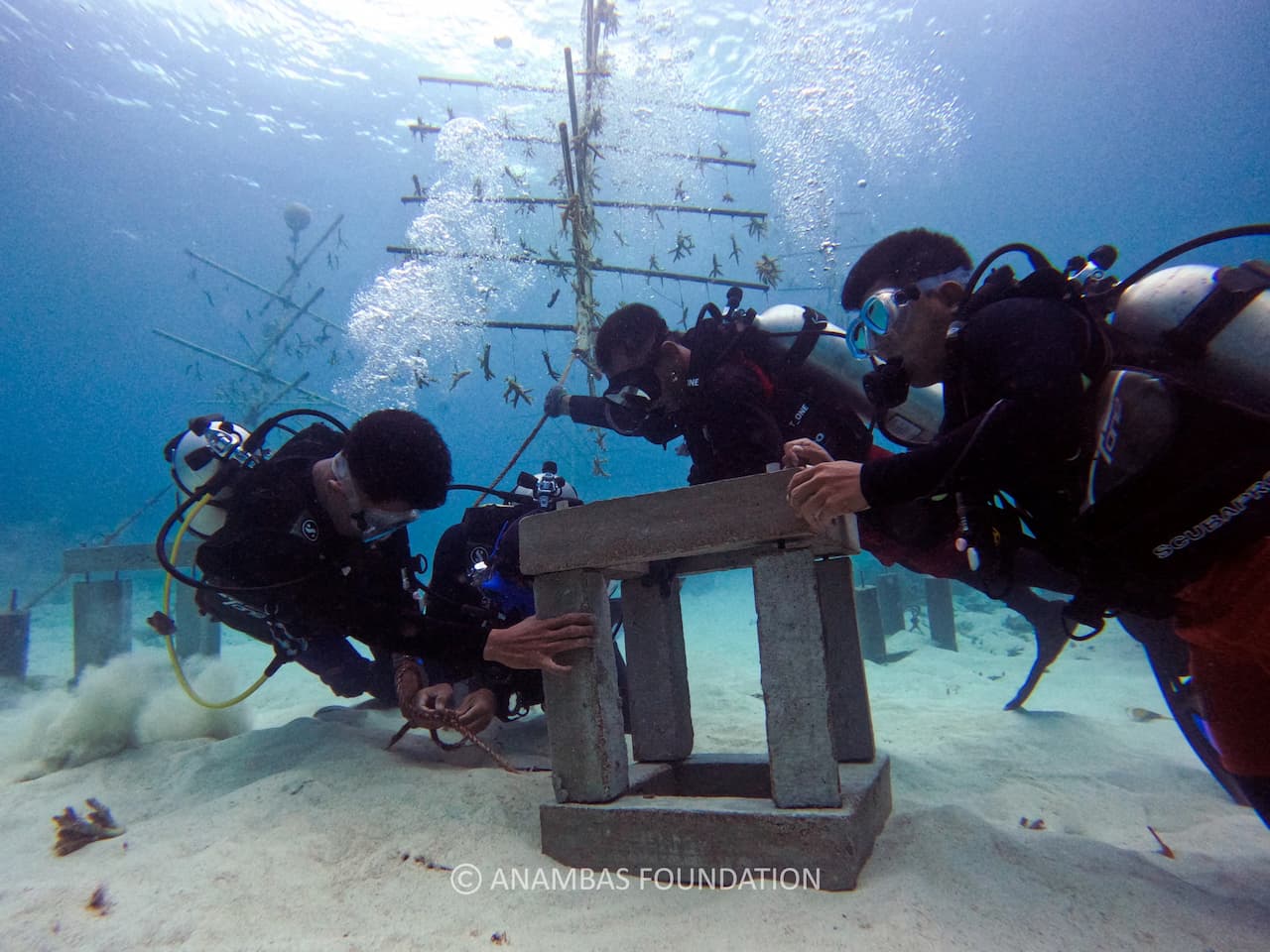
In 2024, five grantees—new Creators of Hope—were selected by the Reconciliation with Creation network, spearheaded by coordinator Fr Gabby Lamug-Nañawa SJ. Small grants were given to support youth-driven ecological service projects across Asia Pacific.
Ranging from sustainable livelihoods to inclusive mobility, from advocacy through filmmaking and capacity building to marine conservation, these young people are making strides in contributing to solutions and resolutions, active and hopeful responses to the ecological crisis of our time.
Karlo Abadinez and Vince Perez
Quezon City, Philippines
Towards Real Utopias
Karlo Abadinez and Vince Perez are leaders in the development sector who advocate for youth advocacies and social justice. Their proposed project, Towards Real Utopias, is a capacity-building intervention centred on designing a solution towards understanding and addressing the polycrisis that concerns our world today. With the aim of “deepening people’s capacities to understand systemic and interconnected problems and to expand imaginations for concrete alternatives and visions that lead to human flourishing for all”, they are putting together a research paper to summarise ideas and a framework geared towards a sustainable societal model that upholds human flourishing for all, including. processes and pedagogies that may be deployed to commit this into action.

Sef Arcegono & Jerome Dulin, Tugegarao, Philippines
Sef Arcegono & Jerome Dulin
Tugegarao, Philippines
“I Bannag Ta Pansí Batil Potun”
Sef Arcegono and Jerome Dulin are filmmakers who founded the North Luzon Cinema Guild, a collective of creatives and cultural workers who are human rights advocates based in the Northern Luzon Region in the Philippines. The two have produced a short film called I Bannag Ta Pansí Batil Potun, outlining the effects of climate change on agriculture and the food industry, particularly on the farming community in Tuguegarao City. Through the film, Sef and Jerome seek to raise ecological awareness and collaborate with farmers, cooks, and local government units to encourage climate action.
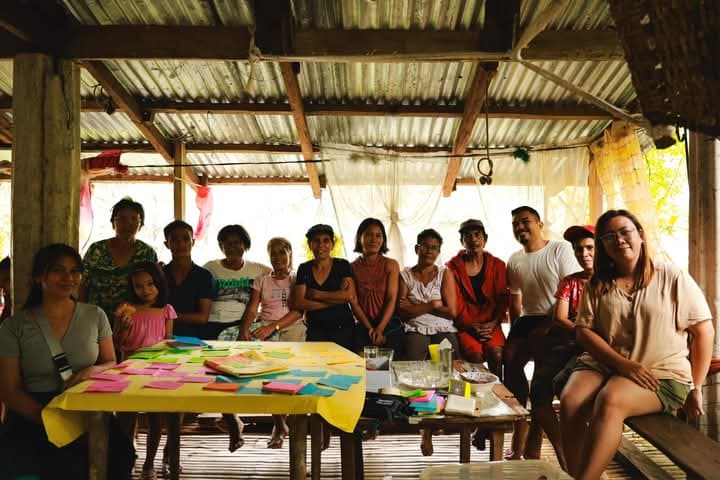
Sharmaine Blas, Antique, Philippines
Sharmaine Blas
Antique, Philippines
Through Her Hands
Sharmaine Blas is the founder of Through Her Hands: Women Weaving Stories, Craft, Restoration. The project supports the women of Antique by providing ecologically conscious alternative livelihood in the form of woven products. The project also highlights craftsmaking, which fits the environmental and cultural contexts of Barangay Alojipan. By increasing market access, empowering women, and encouraging the responsible use of natural resources, her aim is to provide a source of stable income for the locals. Sharmaine is also a member of Dulungan Youth, an organisation based in Culasi, Antique, Philippines, whose founder was also a Creators of Hope grantee in 2022.
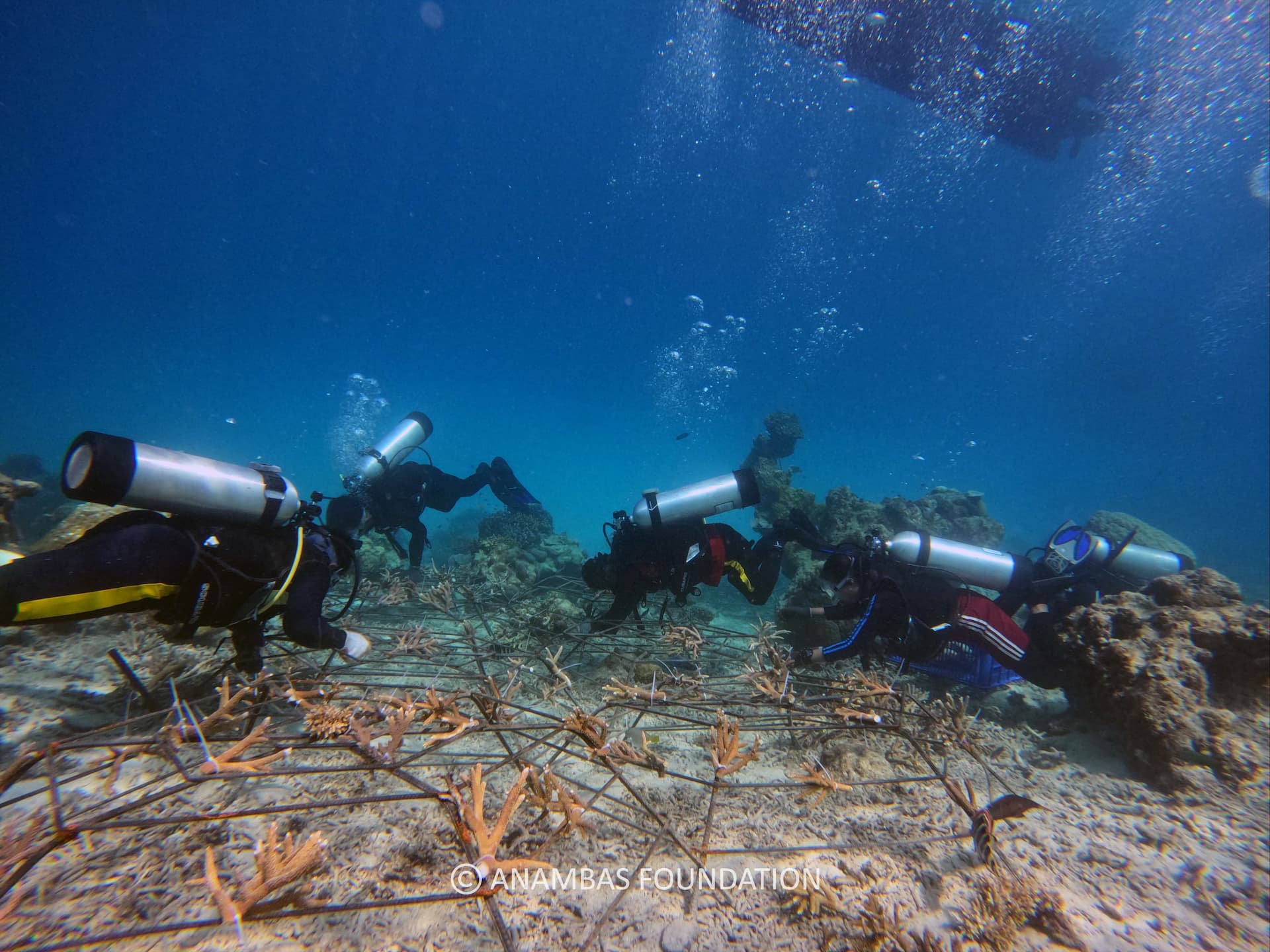
Fauzan Maulana, Anambas Islands, Indonesia
Fauzan Maulana
Anambas Islands, Indonesia
Guardians of the Anambas Seas
Fauzan Maulana is a young man involved with a community-based reef conservation project that seeks to rehabilitate marine ecosystems, empower fishing communities, and promote sustainable ecotourism in the Riau Islands Province. He is a junior marine biologist who specialises in sea turtle conservation. He is joined by three other team members who are also experts in the rehabilitation of marine and coastal ecosystems: Abdul Rahman Ritonga, Afifa Nafisa Windyana, and Rahmat Caesar. This project is piloted by the Anambas Foundation based in Indonesia and continues thanks to Fauzan and his colleagues and their commitment to guarding their environment.
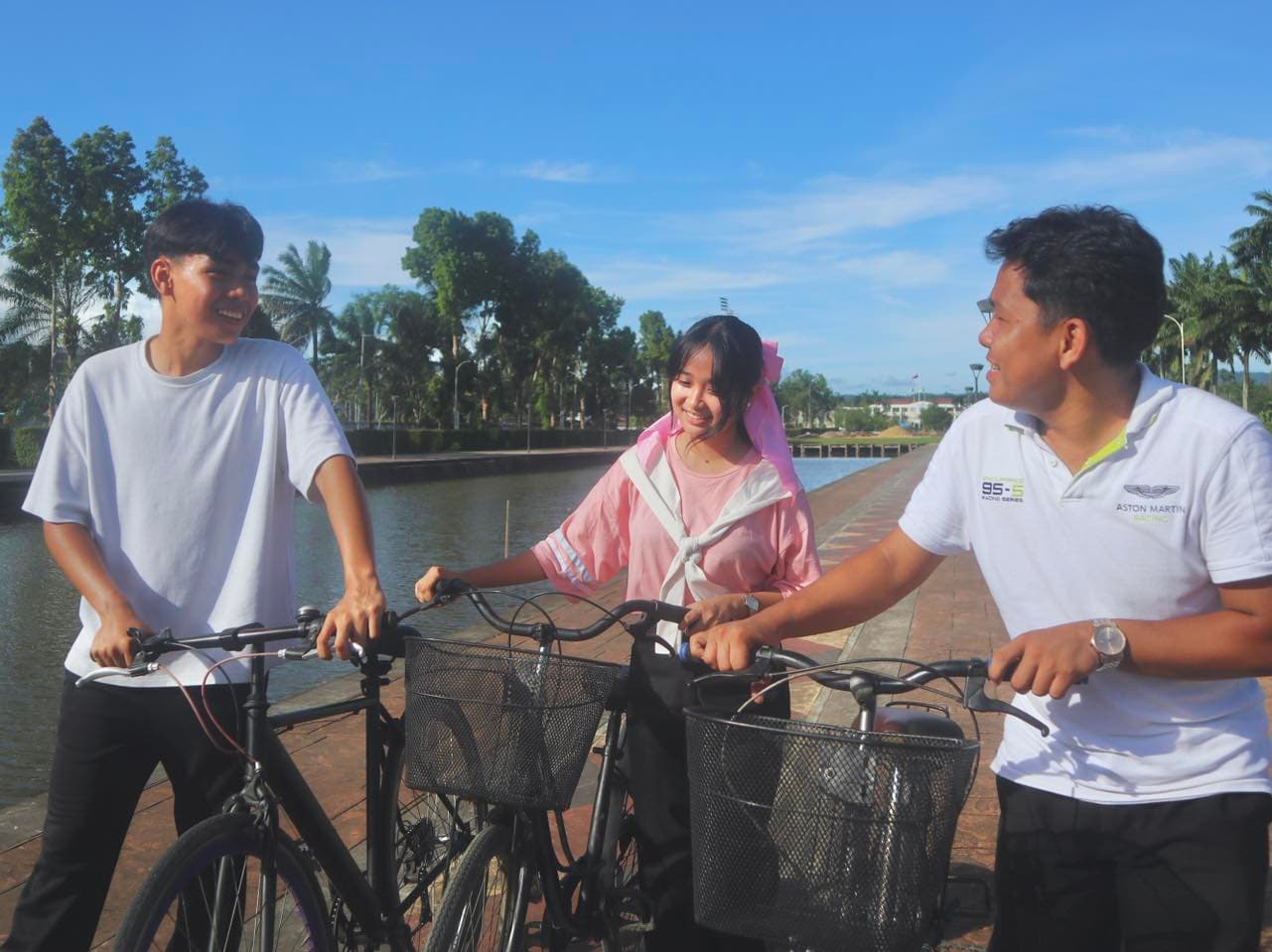
Sheen Ochavo, Agusan del Sur, Philippines
Sheen Ochavo
Agusan del Sur, Philippines
PadyaKalikasan (Pedal for the Environment)
Sheen Ochavo is the founder and executive director of iKilos Bayugan, an organisation that advocates for the youth and the environment and the promotion of good governance in Bayugan City, Agusan del Sur, Philippines. He established the organization out of his desire to solve the environmental challenges and mould the future of his community through youth action. iKilos Bayugan created PadyaKalikasan, whose name is a play on the Filipino words “padyak,” which means to pedal, and “kalikasan,” which translates to environment. The project aims to minimise air pollution within the city through the promotion of cycling as a sustainable means of transportation.
Milestones in Mission & Ministry
Thirty Years of Jesuit mission in Cambodia
The Jesuit mission in Cambodia officially began in 1994, but Jesuit presence in the country dates back more than a decade earlier.
Jesuit involvement with Cambodia begins in the refugee camps on the Thai border through the Catholic Office for Emergency Relief and Refugees (COERR).

Jesuit Refugee Service (JRS) begins accompanying refugees. The refugee camps held 600,000 Cambodians who had fled the civil war that ensued after the Vietnamese invasion and the subsequent collapse of the Khmer Rouge regime. Care for the disabled and education were the first priorities of the pioneers of the mission in the camps.
Sr Denise Coghlan RSM, along with other Mercy Sisters, journeys from her native Australia to a refugee camp on the Thai-Cambodian border to work in education initiatives.
JRS holds a six-week discernment retreat to decide on the continued presence in the camp and entry into Cambodia.

JRS enters into an agreement with the Cambodian government for the establishment of a technical training school for the handicapped, integrated rural development, and peace and reconciliation activities for a period of six years. This agreement allowed the pioneering group of Br Noel Oliver SJ, Sr Denise Coghlan RSM, Sr Marie Jeanne Ath CDP, and Fr Jub Phoktavi SJ (then a lay volunteer) to enter Cambodia and begin operations.
“It was a journey to promote reconciliation and diversity. We had men working with women, Buddhists working with Christians and disabled working with nondisabled.”
~Sr Denice Coghlan RSM
The Paris Peace Accords, officially the Comprehensive Cambodian Peace Agreements, are signed on 23 October, marking the official end of the Cambodian–Vietnamese War and the Third Indochina War.

The first Dhammayietra (peace walk) is held to commemorate the historic repatriation of refugees along the Thai border camps. The peace walk spans 415 kilometres and takes place in early May, usually involving Buddhist monks and laity.

The Mekong Wheelchair Workshop opens.
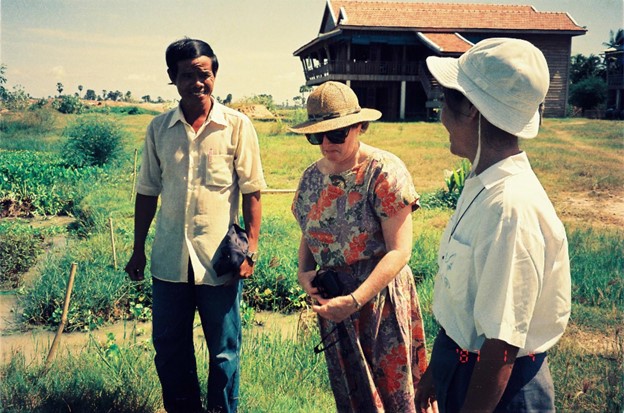
What was initially JRS in Cambodia becomes Jesuit Service – Cambodia (JSC), allowing the organisation’s programmes and services to flourish. These programmes included mission activities in Phnom Penh, the Rural Development Program at Ang Snaul, and Banteay Prieb, a technical school for the handicapped.
In the same year, the mission is formally established by Superior General, Fr Hans-Peter Kolvenbach SJ, who entrusts it to the Jesuit Conference of Asia Pacific, then known as the Jesuit Conference of East Asia and Oceania.

Fr General Kolvenbach visits the Cambodian mission.
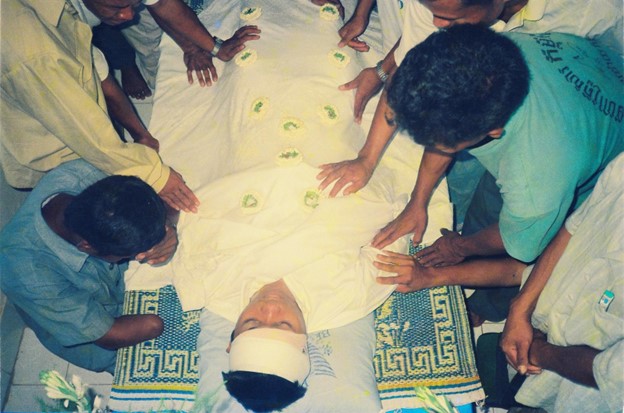
Filipino regent Richie Fernando dies in Banteay Prieb on 17 October while saving a classroom full of students from a grenade blast caused by a disgruntled student.
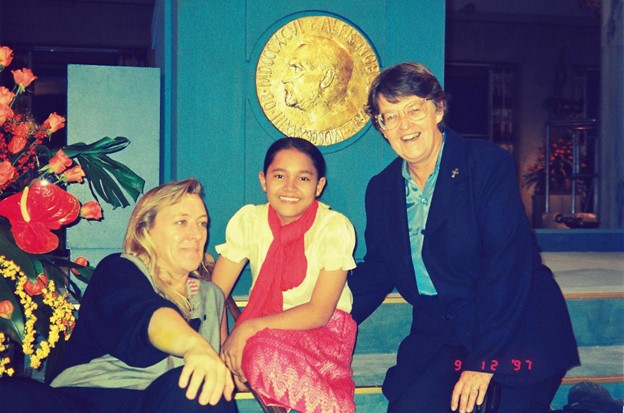
The International Campaign to Ban Landmines (ICBL), in which then JSC Director Sr Denise Coghlan RSM and other JSC members played key roles, is awarded the Nobel Peace Prize. JSC team member Mr Tun Channareth, who himself lost both legs in a landmine explosion, receives the award on behalf of the ICBL.
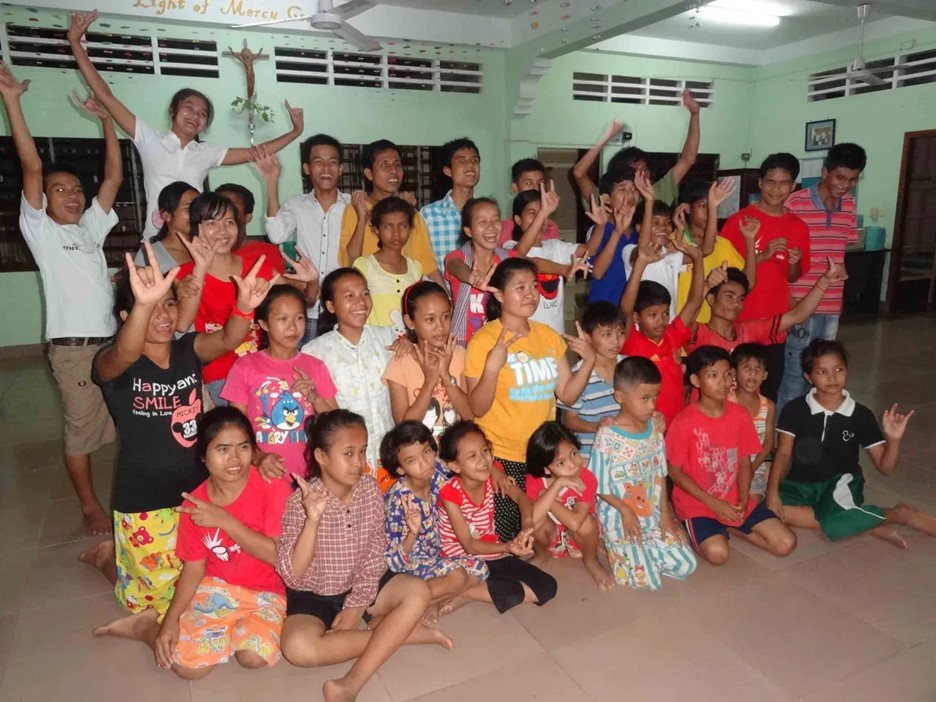
Light of Mercy Home opens.

Cambodia holds its first national elections since the UN-supervised elections in 1993. The elections spark controversy over the issues of fairness and credibility, with the Cambodian People’s Party (CPP), rooted in Vietnamese communism, being declared the official winner. Opposition parties accuse the CCP of winning through intimidation and fraud. Meanwhile, more Jesuit regents arrive in Cambodia.
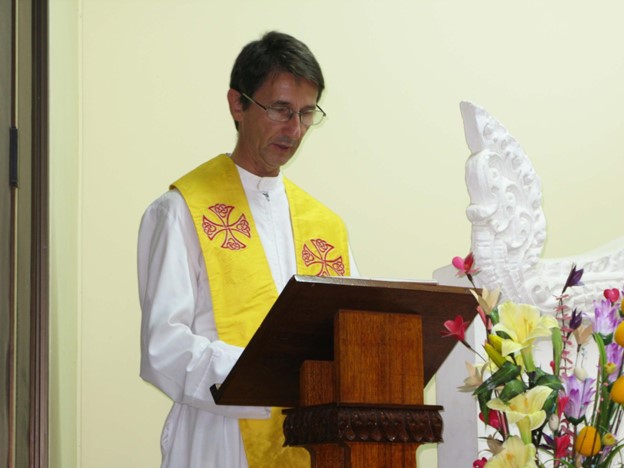
The Catholic Student Center opens.

The Battambang Prefecture, one of Cambodia’s three administrative ecclesiastical districts, is entrusted to the mission through Msgr Enrique (Kike) Figaredo SJ, who is appointed as the Prefect Apostolic. This considerably expands the mission’s reach and responsibility.

The conference’s major superiors discuss the mission’s goals.
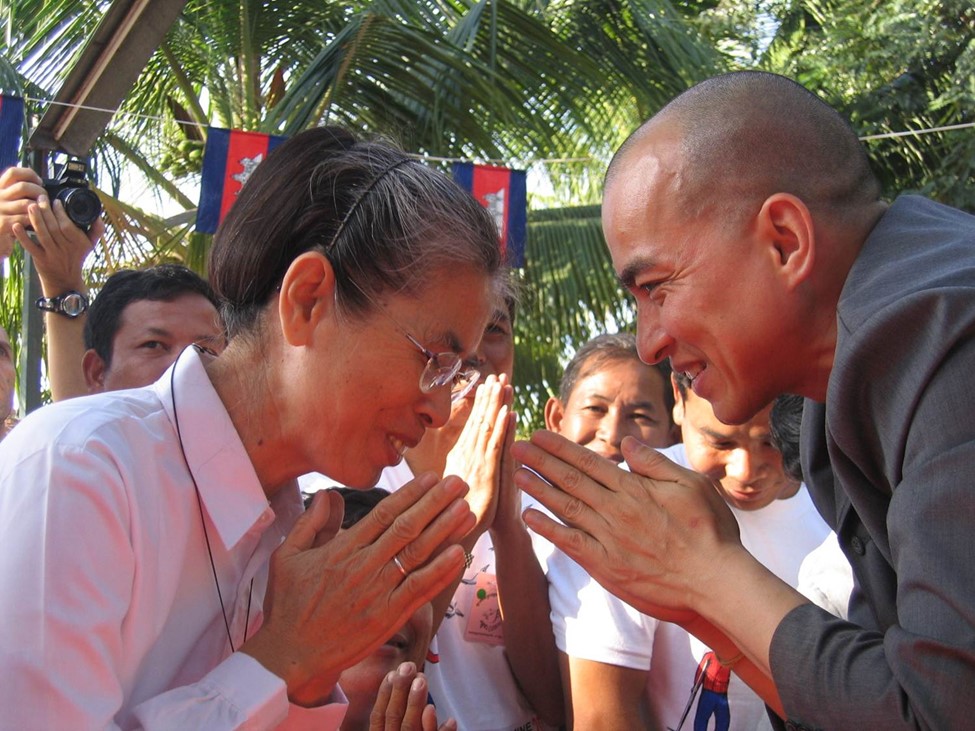
King Shiamony visits Banteay Prieb.
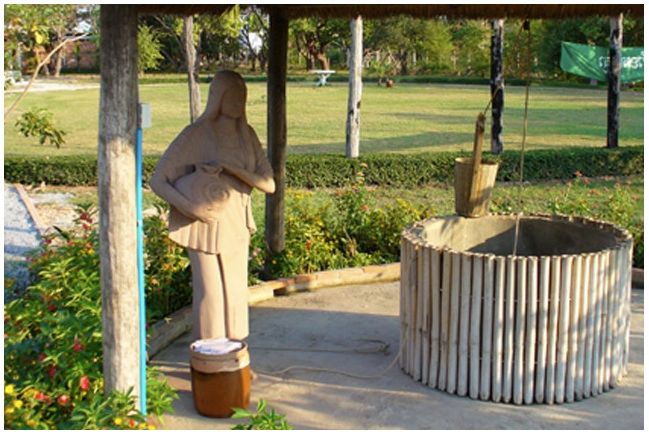
Metta Karuna Reflection Center, an interfaith centre, opens in Siem Reap on land purchased in 1995, where the Jesuits and mission partners planted rice.
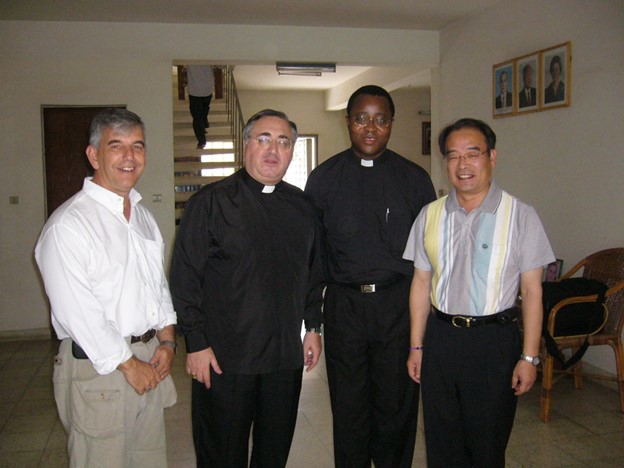
Fr Gabriel Je is appointed as the first Delegate of the Korean Provincial to the Cambodia Mission. General Congregation 35 begins in Rome.
Magis Cambodia is established.
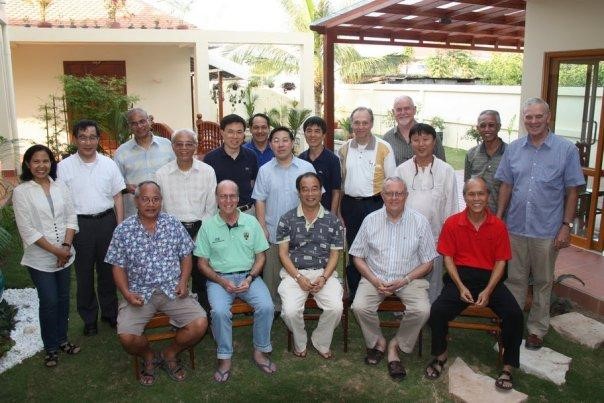
Prieb So House, the Jesuit community in southern Cambodia, is officially blessed .
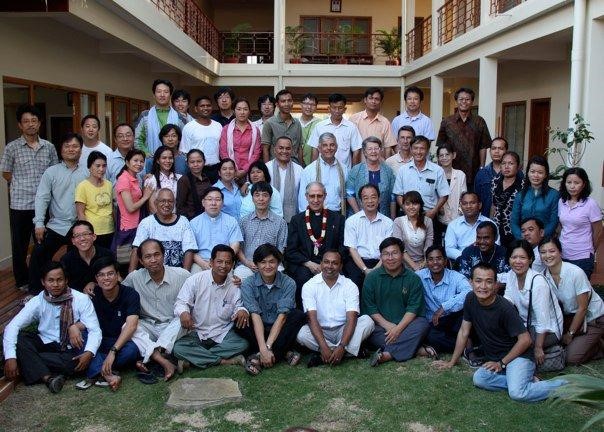
Fr General Adolfo Nicolas visits Cambodia.
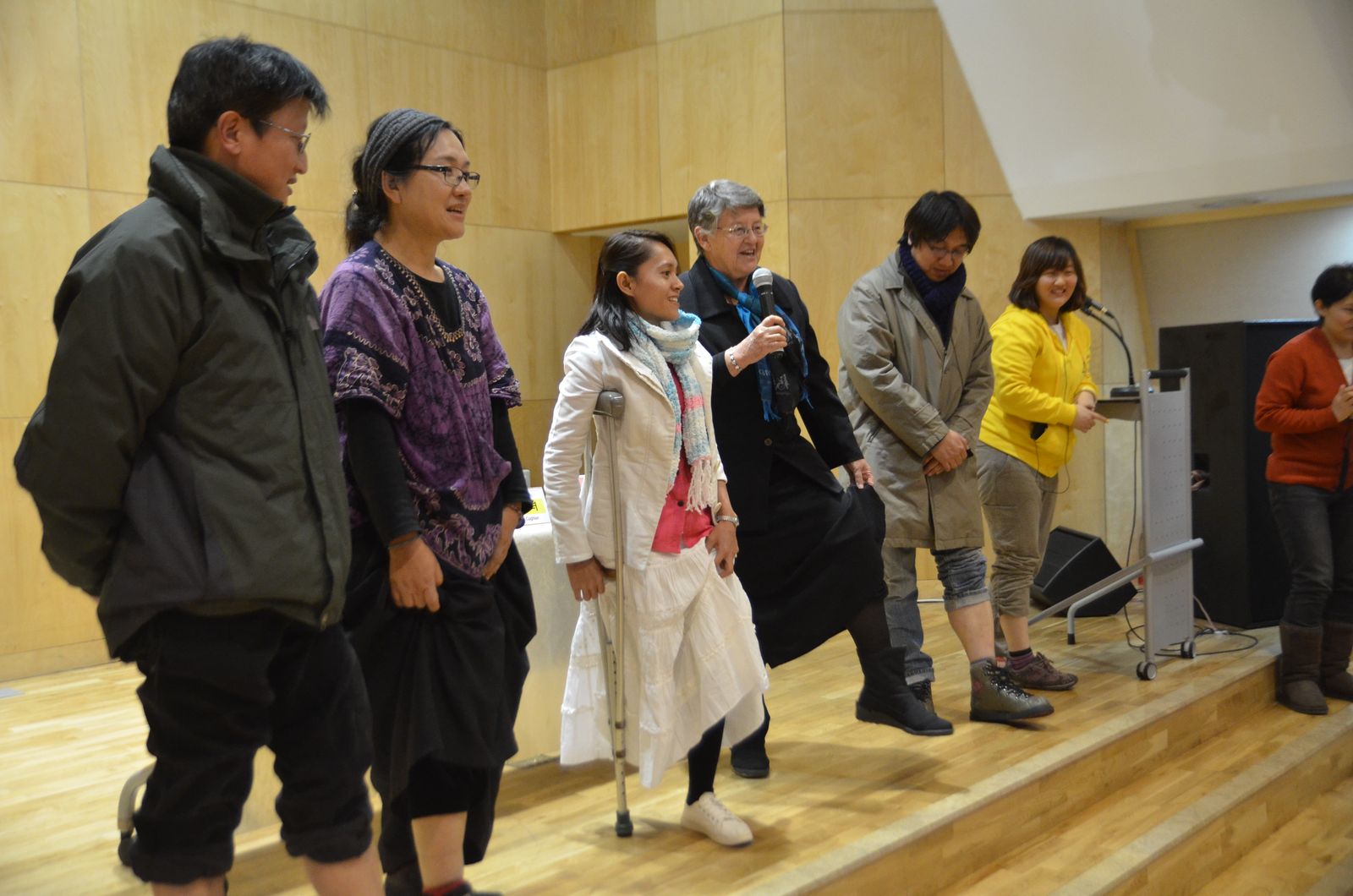
The Cambodia Campaign to Ban Landmines receives the 15th Tji Haksoon Justice and Peace Award for its dedication to the welfare and rights of landmine victims.
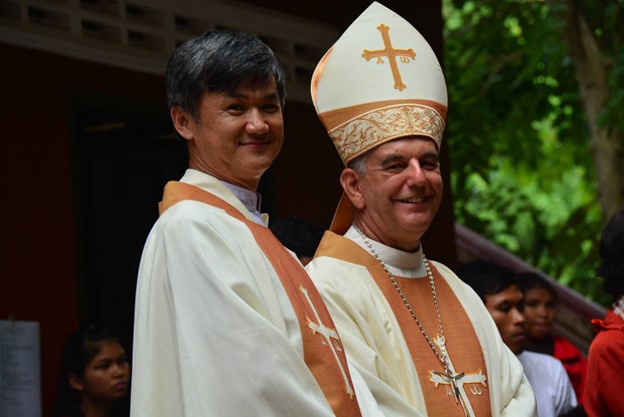
Fr In-don Oh is appointed mission delegate, succeeding Fr Gabriel Je.

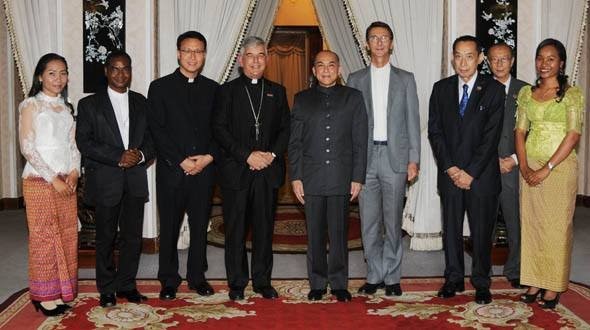
Jesuits begin work on the Xavier Jesuit School project, with Irish Jesuit Fr Ashely Evans as the first project director.

Magga Jesuit Research Center opens.

General Congregation 36 begins in Rome, with Fr In-don Oh participating as a delegate.
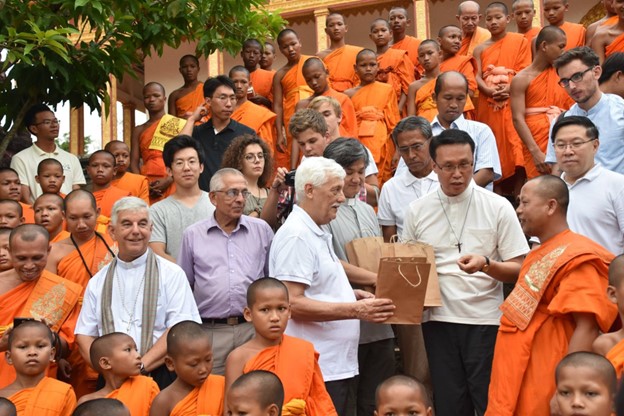
Fr General Arturo Sosa visits Cambodia.
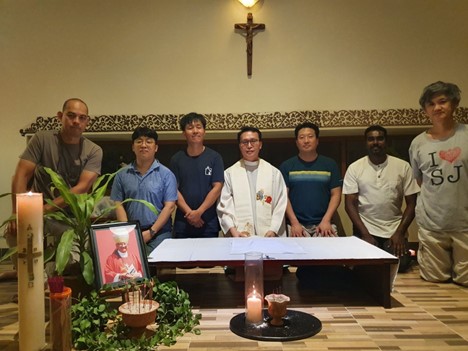
Xavier House, the Jesuit community in northern Cambodia, is established.
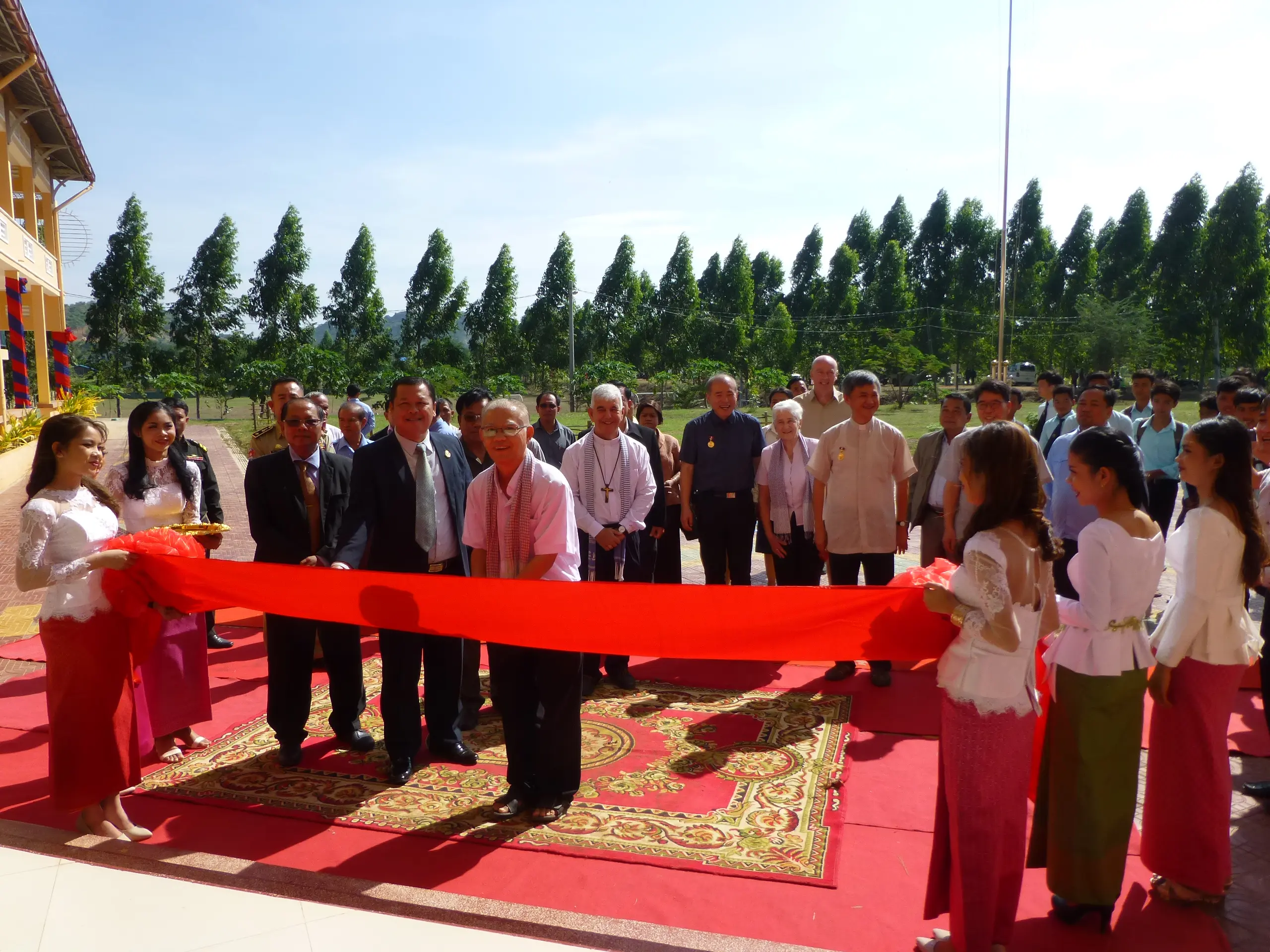
On 2 December, Xavier Jesuit School is inaugurated, with Australian Fr Quyen Vu SJ as the first school director.
“We have been able to establish a truly Ignatian and Catholic school on Khmer soil with Buddhist partners.”
~ Fr Ashley Evans SJ

Jesuits and partners identify the apostolic priorities of the Cambodian Mission.

Banteay Prieb graduates its last class, signalling the school’s closing. A total of 2,800 students trained at the centre and more than 25,000 wheelchairs were produced. Cambodian authorities reclaim ownership of the land to be used as a National Rehabilitation Center.

Ruom Center for factory workers opens.
The mission joins the International Federation of Fe y Alegría, which seeks the transformation of society through quality education for the poor.
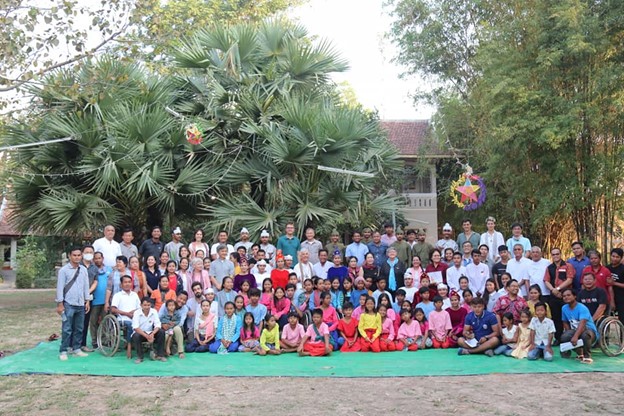
JRS Cambodia celebrates 30 years.
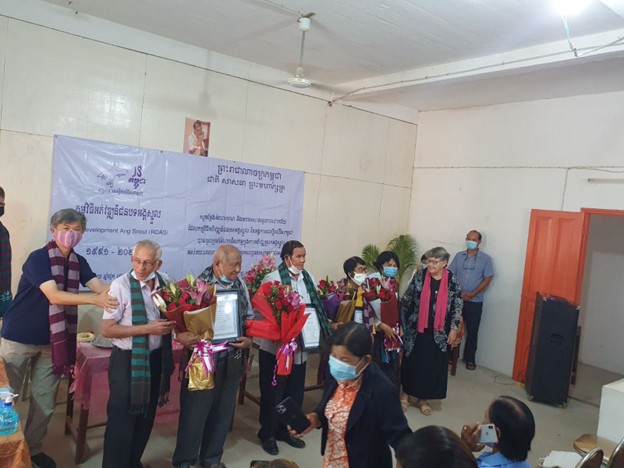
The Rural Development Program at Ang Snoul officially closes. Through the years, it helped build 28 schools and thousands of poor children received schooling assistance.
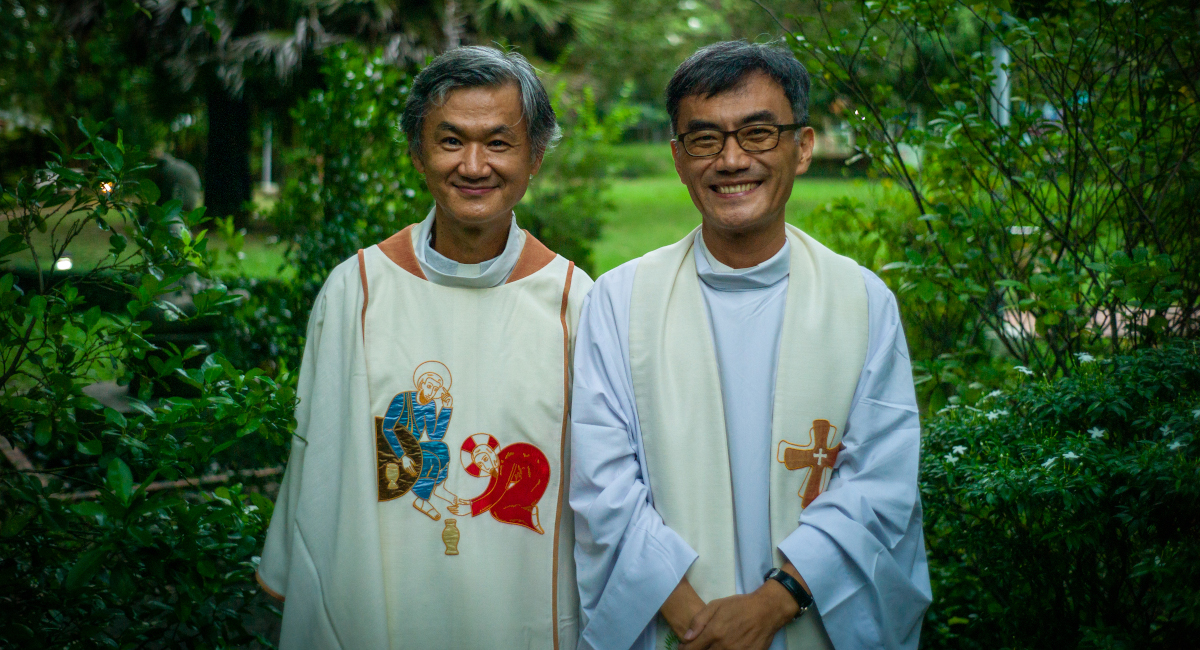
Fr Oh-Chang Kwon is appointed mission delegate.
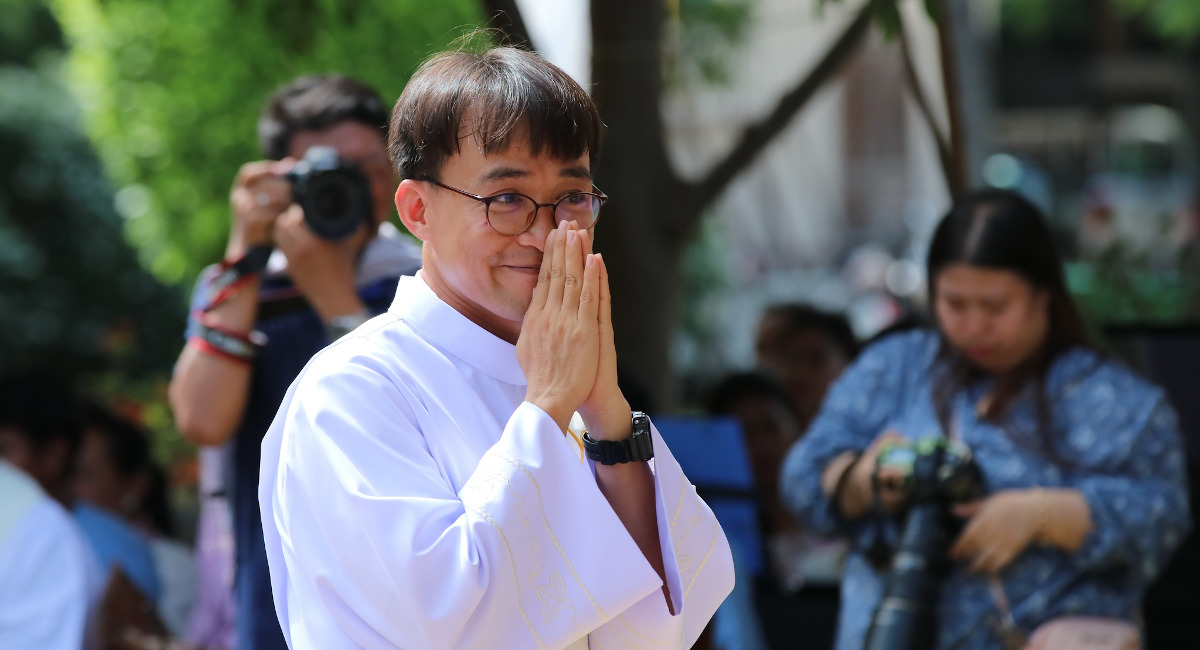
The Church ordains her first Khmer Jesuit priest, Fr Damo Chour SJ.
Fr General Arturo Sosa appoints Fr Manoj Ekka as Superior of Prieb So community and Fr Kang In-gun as Superior of Xavier House community.
Rebuilding Kingsmead
by Nicolette Rappa
Kingsmead Hall Turns 70:
History, Heritage, and a Look Within
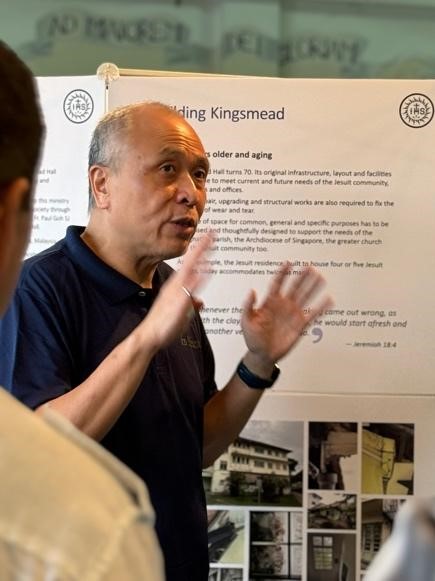
Fr Jerome Leon SJ leads the rebuilding of Kingsmead project | Photo from the Chancery Archive of the Archdiocese of Singapore
Prior to these tours, few had seen the interior of Kingsmead Hall.
The Inside Story
The building was initially established as a hostel for tertiary students and trainee teachers. Fr Patrick Joy SJ, the superior of the Jesuits in Malaya, identified this as the most pressing need at the time. It was the early 1950s, and post-war Singapore faced a shortage of educators. In response, the Jesuits were called to help, with a handful of Irish Jesuits based in Hong Kong answering the call. On 22 November 1954, Kingsmead Hall officially opened on land known as “Kingsmead Estate”.
The hostel accommodated 80 students and teachers and included a lecture hall and living quarters for the five Jesuits in residence. On 16 August 1954, the building was blessed by His Grace, Michel Olçomendy, the Archbishop of Malacca. That November, Sir John Nicholl, the Governor of Singapore, officially inaugurated Kingsmead Hall, with Fr Brian Kelly SJ as its first warden.
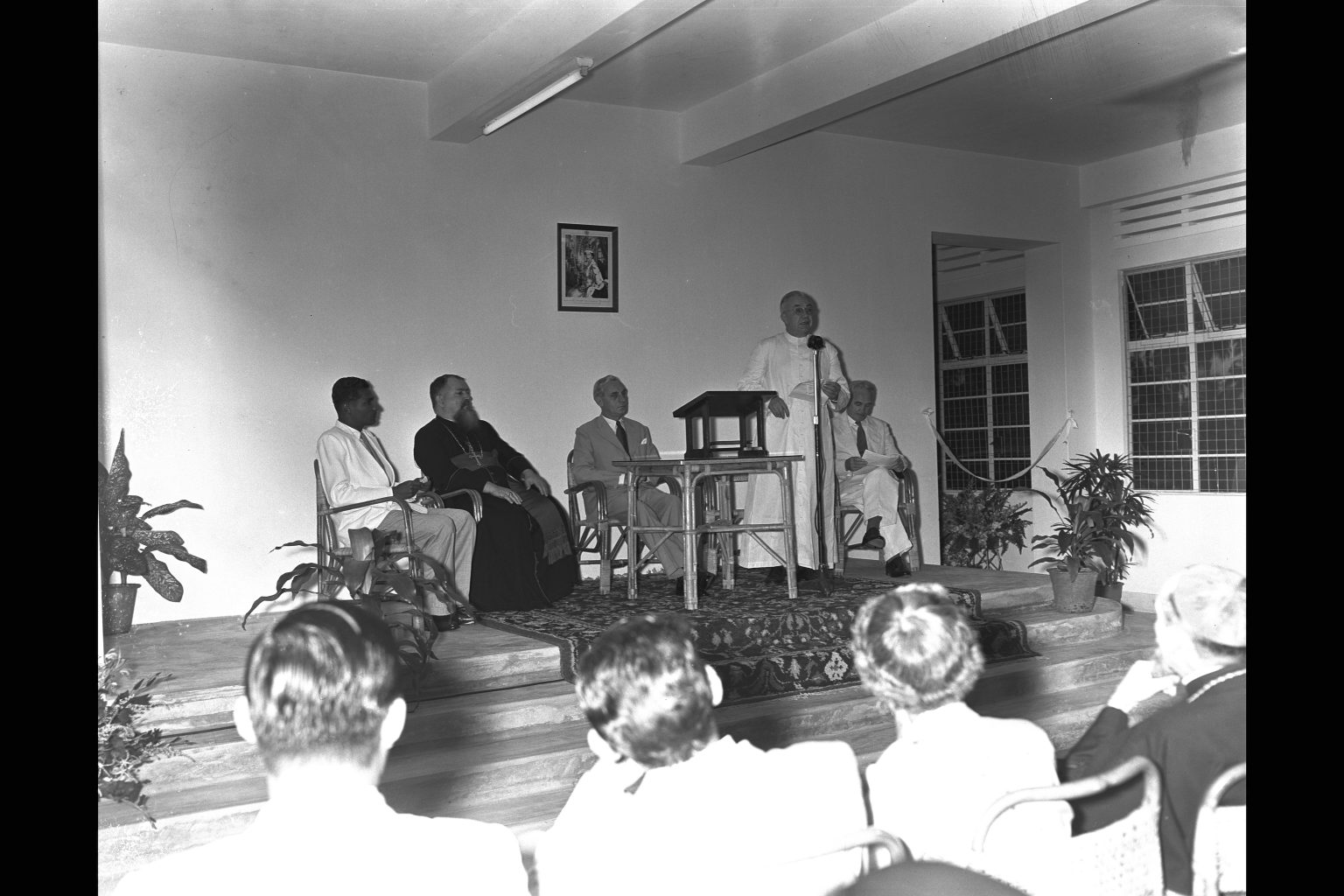
Fr Patrick Joy SJ at the opening of Kingsmead Hall on 22 November 1954. In attendance were Sir John Nicholl, governor of Singapore, and Archbishop Olçomendy | Photo from the Ministry of Information and the Arts Collection, courtesy of the National Archives of Singapore
Expansion and Conversion
Kingsmead Hall was foundational in creating the community. The Irish Jesuits served the spiritual needs of the small but growing Catholic population. Sunday Mass, initially held in a converted room at Kingsmead Hall for the hostelites, soon attracted Catholics from the vicinity. Mass was celebrated there until 1961, when the Church of St Ignatius was opened at the request of Archbishop Olçomendy. Fr O’Dwyer SJ became its first parish priest, with Fr Gerard Keane SJ as the assistant parish priest. At his passing on 27 November 2018, Fr Keane was the last of the Irish Jesuits to serve in the region of Malaysia-Singapore.
Over time, alternative accommodations became available, and fewer students and trainee teachers sought residence at Kingsmead Hall. Running a hostel became impractical, prompting a shift in purpose.
This change aligned with the expansion of the Jesuit ministry, including their work in spirituality and support for various apostolates in the region. In 1988, a portion of Kingsmead Hall was repurposed to house the Centre of Ignatian Spirituality and Counselling (CISC) and the Jesuit novitiate. The novitiate moved from Petaling Jaya, Malaysia, to Kingsmead Hall in 1989, with Fr Paul Goh SJ appointed as the first novice master.
Fr Hilario Fernandez SJ, the first director of the CISC, established the ministry to help individuals become whole and well-integrated members of society through retreats, days of recollection, spiritual direction, and counselling. On 21 October 1990, Archbishop Gregory Yong inaugurated the CISC, coinciding with the 500th anniversary of the birth of St Ignatius and the 450th anniversary of the formal approval of the Society of Jesus by Pope Paul III.
Since its opening, the CISC—renamed the Kingsmead Centre for Ignatian Spirituality and Counselling in 2013—has welcomed parishioners of St Ignatius and other parishes, and even other countries, including non-Catholics, who have joined retreats and seminars.
Kingsmead Hall has also served as the curia of the Malaysia-Singapore Jesuits since January 2011, when the headquarters moved from Petaling Jaya.
Taken to the limit
The 70-year-old building is now showing its age. The visitors on guided tours observed cracks, water stains, and termite trails on walls, ceilings, and doors. In one room, where a portion of the ceiling had collapsed months earlier, recent plaster work hid exposed pipes. On an upper-level floor, makeshift wooden barriers were used to prevent rainwater from flooding the rooms. One room had holes bored through the wall to drain the water that flowed over the barriers. Missing roof tiles and corroded pipes highlighted the state of disrepair.
Apart from the decades of expected wear and tear, frugality and limited funds meant that repairs were done sparingly and only when urgently needed. The ad hoc work led to patchy results.
As the groups continued on their tour, they walked through the rooms which had served as dining and living areas from the beginning, where even today, the Jesuits would sit and relax after dinner. They saw the sanctuary and the living quarters of the priests, which were “typically Jesuit—spare with just a bed, a desk, and a sink,” and the rooms of retreatants. These rooms, once cosy, had now become cramped. Built for four or five Jesuit priests, the Jesuit residence today accommodates twice as many. It is clear that Kingsmead Hall’s original infrastructure, layout, and facilities can no longer meet the current and future needs of the Jesuit community, its ministries, and offices. Major repairs, upgrades, and structural works are urgently needed.
Fr Jerome envisions the new Kingsmead Jesuit Service Centre as welcoming, inclusive, sustainable, and accessible.
Time for transformation
Rebuilding Kingsmead is now essential. Fr Jerome Leon leads a committee overseeing the reconstruction and redevelopment of Kingsmead Hall into a Jesuit Service Centre. Inspired by his visits to similar centres overseas, Fr Jerome envisions the new Kingsmead Jesuit Service Centre as welcoming, inclusive, sustainable, and accessible.
The new facility will consolidate all Jesuit ministries and organisations following the Ignatian tradition under one roof. Optimised for common, general, and specific purposes, the space will support the changing and increasing needs of the Jesuits and the communities they serve.
This transformation will enable the Jesuits to draw on their deep heritage while better serving the sacramental, spiritual, and corporal needs of St Ignatius Church parish, the archdiocese, and the greater Catholic community.
This is the focus of the Rebuilding Kingsmead project: “Honouring our Heritage. Fostering our Future”.
If you would like to find out more, visit Rebuilding Kingsmead or contact Fr Jerome Leon, SJ.
Wah Yan College, Kowloon: For and With Hong Kong for a Century
by Dr Ying-lun So
A Century of Faith and Formation: 100 Years of Wah Yan College, Kowloon
Wah Yan College, Kowloon is celebrating its centenary this school year, 2024-25. Over the past century, with the grace of God, Wah Yan College Kowloon has nurtured and transformed the lives of numerous young men, many of whom went on to make significant contributions to society. Of no less importance is the fact that many also became worthy members of their families, circles of friends, and good “neighbours”.
Wah Yan College was founded by Mr Peter TSUI Yan Sau on 60 Hollywood Road in 1919 on Hong Kong Island. In 1924, the Kowloon Branch of Wah Yan College was established with an initial enrolment of 24 students and subsequently became one of the first Grant-in-Aid schools in Hong Kong managed by Chinese. In 1946, the management was handed over to the care of the Society of Jesus. Fr Patrick Toner SJ became the first Jesuit principal in 1952, the same year when the college moved into its current campus on 56 Waterloo Road.
In these 100 years, Hong Kong has undergone significant changes, such as the Japanese occupation from 1941 to 1945, the historic shift in the political landscape in China, the handover of Hong Kong to China in 1997, and a major economic transformation—from being a small trading port to the cosmopolitan city it is today. Throughout these changes, the college has remained faithful to its educational mission while adapting to the changing contexts and needs of students.
Located in the Yau Ma Tei district of Kowloon, the school serves students from very diverse socioeconomic backgrounds, including those from impoverished, middle-class, and affluent families. This diversity creates a space where students from all walks of life can learn and grow together, forming lifelong friendships. While the memories of Wah Yan alumni from different eras may vary, they often fondly recall the unique environment provided by the school, its trust in students, and the unconventional teaching approaches of some Jesuits and teachers.
Today, while the college is among the leading secondary schools in Hong Kong in terms of academic performance, it remains true to its tradition and mission by emphasising the nurturing of the whole person. For example, the school has a strong tradition in music, and its boys’ choir is among the best in Hong Kong. In 2016, the choir was crowned “Choir of the World” in Canada, bringing home a prestigious totem. In terms of physical development, many of the school’s sports teams compete in the top divisions of inter-school competitions. Moreover, with the emphasis on STEM education in Hong Kong in recent years, the school’s STEM team has been highly active, winning awards in local and international contests.
Another key feature of whole-person development at the college is the autonomy students are given in organising activities. Teachers act as advisors and companions rather than leaders. Even for “signature” programmes such as the annual Caritas Bazaar, which involves over a hundred students, it is the students who are in charge. As Ms Cecilia Chow, the first female principal of the college who assumed office in 2022, shared:
“The key is to know when to let go. When we trust our students while providing opportunities for reflection on their experiences, the space we provide for them becomes very meaningful for their growth.”
Of utmost importance is the college’s commitment to cultivating spiritual growth and values education. Besides the weekly religious education class, all students participate in an Ignatian examen every day during the first period after lunch. With over 80 percent of students being non-Catholics, the college has a unique opportunity to introduce a large number of young men to the Catholic faith through the Jesuit charism while also exposing them to the spiritual side of their development.
On the curriculum side, while the college needs to follow the local curriculum set by the Education Bureau, it also makes use of the flexibility allowed for innovation. The Vision-in-Action (VIA) curriculum is a case in point. This school-based curriculum, specially designed for senior students (S4 to S5) consists of five key components: Art and Music, Drama, Design Thinking, Entrepreneurship, and Social Service.
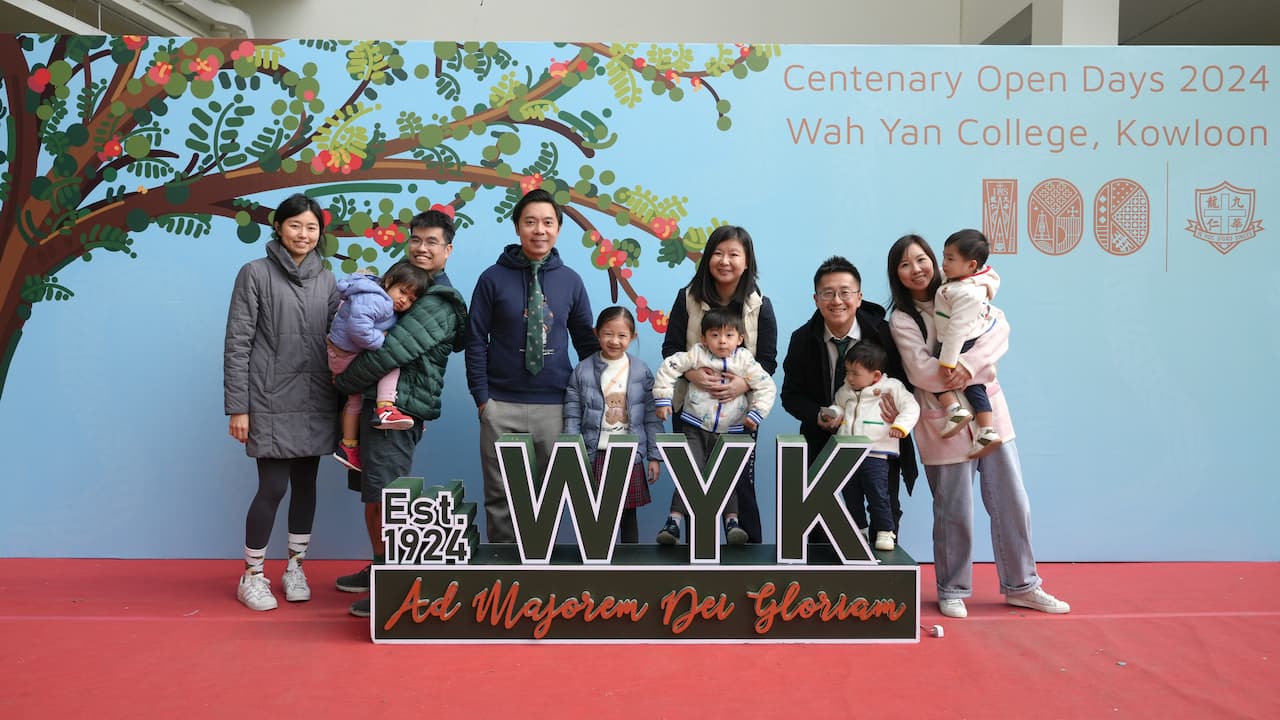
On Open Days, many alumni bring their families to visit the place where they spent some of their happiest days
To celebrate as well as reflect on the centenary of the college, the following activities have been organised for the year:
- The Guinness World Record Event (cum charity programme)
- Open Days
- Centenary Gala Dinner
- Jesuit Education Forum (Theme: “Igniting Hope, Transforming Lives”)
- Centenary Concert
- Centenary Thanksgiving Mass
Looking ahead, as School Supervisor Dr Ying-lun So shared at the Centenary Gala Dinner:
“In a divided world of rapid changes underlined by unprecedented technological developments, the emphasis that Jesuit education places on unity in plurality, depth through reflection on experience, and human excellence means that Wah Yan College, Kowloon will continue to play an important role in nurturing young men to become better persons for a better world.”
Loyola School of Theology: Looking Back and Looking Forward
By Eric Eusebio SJ, President of the Loyola School of Theology, and Bien Cruz SJ
Rooted in Tradition, Forming the Future: 25 Years of LST as an Ecclesiastical Faculty
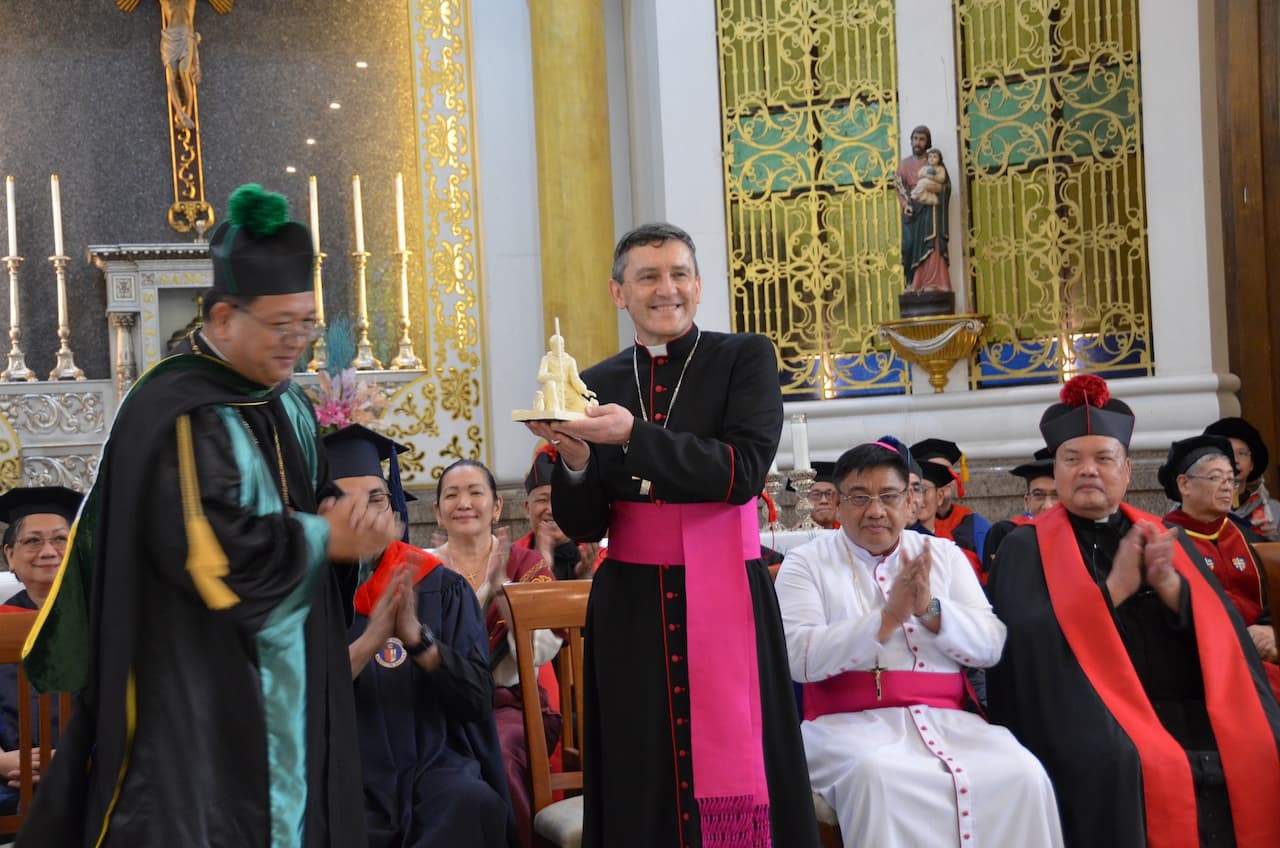
Archbishop Cesare Pagazzi DD receives a token of appreciation from LST President Fr Eric Eusebio SJ at the Special Academic Convocation held on 29 January 2025. The token is a replica of the original statue of St Ignatius of Loyola by the River Cardoner located at the LST Cardoner Garden, designed by Fr Rene Javellana SJ.
Loyola School of Theology (LST) stands as a beacon of academic excellence and spiritual formation in the Philippines. Situated in Quezon City, within the Ateneo de Manila University campus, LST plays a pivotal role in shaping the theological landscape of the country and beyond. As an Ecclesiastical Faculty of Theology, it not only educates seminarians, priests, and religious but also forms lay leaders equipped to serve the Church and society at large. Its mission aligns with the vision of a theology that is both deeply rooted in the Catholic tradition and responsive to contemporary challenges, particularly in the Philippine and Asian contexts.
The expulsion of the Jesuits from the Philippines in 1768 disrupted their educational efforts. Despite this setback, the Colegio de San Jose persisted under the administration of the secular clergy and later became part of the University of Santo Tomas in 1875 as a school of medicine and pharmacy. The Jesuits regained administration of the Colegio de San Jose in 1910, renewing their focus on priestly education. This period marked a revitalisation of their mission, culminating in the recognition of San Jose Seminary as an interdiocesan seminary for the entire Philippines in 1953 by the First Plenary Council of the Philippines. This milestone underscored its national importance and its role in shaping the clergy of the country.
A significant transformation occurred in 1965 when the Provincial Superior of the Society of Jesus in the Philippines, Fr Horacio de la Costa, with the authorisation of the Jesuit Superior General Fr Pedro Arrupe, opened the Loyola House of Studies “School of Theology and Ecclesiastical Studies” (STES). This initiative combined the philosophy faculty of Berchmans College in Cebu City and the theology faculty of San Jose Seminary at Highway 54, creating a unified academic institution dedicated to theological education. Classes commenced at the current site within the Ateneo de Manila University in 1965, and the institution adopted the name “Loyola School of Theology” in 1972. This marked the beginning of a new era for LST, as it expanded its academic offerings and solidified its reputation as a centre of excellence.
LST’s affiliation and eventual aggregation with the Theological Faculty of Fujen in Taipei in 1984 and 1994, respectively, were other significant milestones. This enabled the school to grant the canonical degrees, further enhancing its academic credentials. On 13 August 1999, LST achieved a historic milestone when it was officially established as an Ecclesiastical Faculty of Theology, authorised to confer degrees in Sacred Theology, including the Baccalaureate in Sacred Theology (STB), Licentiate in Sacred Theology (STL), and Doctorate in Sacred Theology (STD). This recognition underscored LST’s commitment to academic rigour and its role in preparing leaders for the Universal Church.
Today, LST is a vibrant academic and spiritual community. In the first semester of the academic year 2024-2025, LST boasts a diverse student body of 511 individuals. This includes seminarians, priests, religious, and lay students. Of these, 53.4% are Filipino, while 46.6% are international students, representing 43 countries, 87 religious congregations, and 42 dioceses. Such diversity underscores LST’s transition from primarily serving the local Church to becoming a centre for the Universal Church. Its students and graduates contribute to the Church’s mission worldwide, serving in various capacities and addressing the needs of their communities.
LST’s reach extends beyond its campus through affiliations with two key theological centres: St John Vianney School of Theology in Cagayan de Oro, Philippines, in 2017, and St Joseph Jesuit Scholasticate Theological Institute in Saigon, Vietnam, in 2018. Both affiliations were renewed in 2023. These partnerships reflect LST’s commitment to theological education and formation across the global Church. By extending its academic and spiritual resources to these institutions, LST contributes to the formation of Church leaders in diverse contexts, enriching the Universal Church’s mission.
LST’s contributions to Philippine society and beyond are manifold. As a centre for theological reflection and pastoral formation, it serves as a vital resource for addressing contemporary challenges. Its graduates, equipped with rigorous academic training and spiritual depth, go on to serve in various regions of the world.
LST is deeply committed to serving the poor and sharing the joy of the Gospel. Inspired by the Jesuit tradition of promoting faith and justice, the institution integrates this mission into its academic and pastoral programmes. Students are encouraged to engage in outreach activities, social justice initiatives, and ministries that address the needs of marginalised communities. By fostering a culture of service and solidarity, LST ensures that its graduates are not only knowledgeable in theology but also deeply committed to living out the Gospel message in their lives and ministries.
The institution’s impact extends to its academic programmes, which are designed to address the needs of the contemporary Church. These programmes provide students with a solid foundation in Catholic theology while encouraging them to engage with contemporary issues. By fostering a spirit of inquiry and dialogue, LST prepares its students to navigate the complexities of modern ministry and leadership.
LST’s current 73 dedicated faculty members and many others who have taught in LST are the cornerstone of its success. Comprising theologians, scholars, and practitioners from various fields, the faculty brings a wealth of expertise and experience to the classroom. Their commitment to academic excellence and pastoral formation ensures that students receive a holistic education. Faculty members also contribute to theological scholarship through research and publications, enriching the broader academic community. This dedication to intellectual and spiritual growth reflects LST’s commitment to excellence in all aspects of its mission.
The institution’s facilities and resources further enhance its academic environment. Located within the Ateneo de Manila University campus, LST benefits from state-of-the-art facilities, including libraries, research centres, and conference spaces. These resources provide students with the tools they need to excel in their studies and contribute to the Church’s mission. Additionally, the campus’ serene environment fosters reflection and spiritual growth, creating a supportive space for theological education and formation.
LST’s impact on the Universal Church is evident in the achievements of its graduates. Over the years, LST alumni—some of whom have been appointed by the Holy Father as bishops—have gone on to serve in various capacities, from parish ministry to academic leadership. Their contributions reflect the institution’s emphasis on academic excellence, spiritual depth, and a commitment to service. By forming leaders who are prepared to address the challenges of the contemporary Church, LST fulfils its mission to serve the Universal Church with distinction.
The institution’s global reach is further exemplified by its international partnerships and affiliations. These collaborations enable LST to share its resources and expertise with theological centres around the world. By fostering dialogue and cooperation, these partnerships enrich the global Church’s mission and contribute to the formation of leaders in diverse contexts. This commitment to global engagement underscores LST’s vision of a theology that is both deeply rooted in tradition and responsive to contemporary challenges.
LST’s history and achievements testify to its enduring commitment to theological education and formation. From its humble beginnings in 1601 to its current status as a premier centre for theological education, LST has remained faithful to its mission. Its journey reflects a legacy of resilience, adaptation, and growth, shaped by the challenges and opportunities of each era. As it continues to grow in size and influence, LST remains steadfast in its mission to prepare leaders who will serve the Universal Church with wisdom, compassion, and faith.
The Loyola School of Theology stands as a testament to the Jesuit tradition of academic excellence and spiritual formation. Its rich history, vibrant present, and promising future reflect its unwavering commitment to theological education and formation. By preparing leaders who can address the needs of the Church and society, LST honours its Jesuit heritage while embracing the challenges and opportunities of the 21st century. Through its mission, LST continues to shape the theological landscape of the Philippines and beyond, contributing to the Universal Church’s mission of faith, justice, and service for the greater glory of God and the service of Mother Church and all mankind.
Pope Francis in Asia Pacific
In the Company of Brothers: Pope Francis’ Jesuit Encounters in Asia Pacific
In honour of the life and service of Pope Francis, who passed away on 21 April at the age of 88, we look back on his final visit to Asia Pacific in late 2024. During this journey, he continued his cherished tradition of meeting with local Jesuits, sharing a series of meaningful encounters with his Jesuit brothers. His apostolic visits to Indonesia, Timor-Leste, and Singapore not only highlighted the diverse faces of the Society of Jesus in the region but also the rich tapestry of its missionary history and contemporary vigour.
In Jakarta on 4 September, the Holy Father met with approximately 200 Indonesian Jesuits, representing two-thirds of their province. Pope Francis immediately noted the strong presence of young Jesuits, with many still in formation. Six days later, in Dili, Timor-Leste, a more intimate gathering of 42 Jesuits welcomed the Pope. The meeting carried profound historical significance, coinciding with the 125th anniversary of the first Jesuit mission in Timor. His final Jesuit encounter took place in Singapore on 11 September. Despite his packed schedule, the Pope arrived early, eager to engage with his brothers.
We’ve compiled some of Pope Francis’ most poignant thoughts and reflections shared during these encounters with his Jesuit brothers—moments of candid conversation where the Holy Father, speaking as both Pope and fellow Jesuit, offered insights into the challenges and opportunities facing the Church in Asia, the Society’s mission, and the broader calling of our vocation.
On prayer
We must pray, pray a lot. I am always reminded of Fr Arrupe’s legacy when he asked Jesuits not to abandon prayer…. His last speech, which he gave in Bangkok, was his testament addressed to the Jesuits. He said that only in prayer do we find the strength and inspiration to deal with social injustice. Look also at the lives of Francis Xavier, Matteo Ricci, and so many other Jesuits; they were able to move forward because of their spirit of prayer. [Conversation with Jesuits in Indonesia]
On discernment
It is important not only to discern in solitude but also to dialogue with a superior. If you receive a boring mission or one that you don’t feel is yours, discern. Good discernment cannot always be done alone: it takes company. I am speaking both to young people in formation and formed Jesuits, and maybe even elders. Beware, however; caricatures of discernment are always lurking! [Conversation with Jesuits in Indonesia]
On inculturation
Jesuits must have the ability to inculturate, as so many missionaries have done on different continents. This implies that the Jesuit preaches in the appropriate language, and in the appropriate form, according to places and times. The two pillars are inculturation of the Gospel and evangelisation of culture. This is also why Jesuits are all different from each other, and it is good that they are. There is no single model. Our vocation is to let the Lord enable us to preach the Gospel with all the richness he has given us. [Conversation with Jesuits in Indonesia]
On clericalism
Clericalism is the highest form of worldliness within the clergy. A clerical culture is a worldly culture. That’s why St Ignatius insists so much on examining worldliness, the spirit of the world, because our sins, especially for frontier men, will be there, in these spheres; in intellectual worldliness, in political worldliness…. The way to fight it is to be pastors of the people…. When you become conceited, think of your mother and grandmother! The faith they gave you was not clericalism; it was something else…. [Conversation with Jesuits in Timor-Leste]
On synodality
Synodality has to be achieved not only at the level of the universal Church, but also in the local Churches, in parishes, in educational institutions. Synodality is a value of the Church at all levels. It has been a very good journey…. Synodality is a grace of the Church. It is not democracy. It is something else, and it requires discernment. [Conversation with Jesuits in Singapore]
On the civil crisis in Myanmar
There are good young people fighting for their homeland. In Myanmar today you cannot be silent; you have to do something! The future of your country must be peace, based on respect for the dignity and rights of all, on respect for a democratic order that allows each person to contribute to the common good. [Conversation with Jesuits in Indonesia]
On the relationship between the Society of Jesus and the universal Church
The speech that St Paul VI gave at General Congregation XXXII is a work of art. It clearly says what the Church wants from the Society. I ask you to read that speech: it is a masterpiece. When I had become pope, I asked if there were manuscripts of the speech, so the librarian went to the Secret Archives and brought them to me. He wrote it in his own hand; that’s why I say it’s spontaneous. I saw the draft written in his own hand. Read it; it is a strong speech. This outlines the relationship with the Church, a relationship of freedom. [Conversation with Jesuits in Timor-Leste]
On lay collaboration
For its mission of inculturation, the Society needs the laity, and I like what the Society is doing with them in various places…. The Jesuit, when he knows that a role can be taken up by lay people, leaves it to them…. Don’t forget that the important thing is pastoral care, both the intellectual pastoral care, which is fundamental, and the pastoral care related to being close to young people. [Conversation with Jesuits in Timor-Leste]
On accompanying young people in finding their vocation
Never lower the ideal! You can revise the way we work with young people, of course, but you must not lower the ideal. Young people have a thirst for authenticity. Today, for example, before I boarded the plane, I had a meeting with young people from East Timor. I felt they were brave! They want to commit themselves, and they need to be accompanied in their ideals. I told the young people this morning, “Make a noise.” The second thing I said is that they need to take care of the elderly. This direct relationship between young people and elders is really important to me. Working with young people is something that has to be invented every day. It takes creativity. And never be discouraged. [Conversation with Jesuits in Singapore]
On mission
The criterion is always: take on the mission because it has been given to you. When you are elected pope, you are asked whether you accept the role or not. But once you have accepted, you have no choice: either you go ahead with your abstract, personal criteria, or you go ahead with what the Church asks of you. [Conversation with Jesuits in Timor-Leste]
On the work of the Jesuits in Asia
An important work of the Society in Asia is the social centres and the intellectual and educational apostolate. Sometimes it is thought that the modern Jesuit has to leave the colleges. But, please don’t! The Society is in the business of forming the hearts and minds of people. This is done well with schools, and it is also done by having lay professors. I believe that this apostolate of education is needed in this region of Asia, along with the social apostolate. Do you people have any magazines here in Asia? Jesuit publications are also an important apostolate. [Conversation with Jesuits in Singapore]
On being a Pope
Being pope is a cross just like yours is a cross. You all have your own cross. The Lord accompanies you, consoles you, gives you strength. Many times you have to pray a lot to have the light for decisions. But this everyone has to do. A very beautiful thing is to see how the Lord speaks to you through people, speaks to you through those who are able to pray best, the simple people. Even the parish priest has his collaborators, as does the pope. And the pope has to listen a lot. I then try not to lose my sense of humour. This is really important. A sense of humour is healthy. Maybe I am exaggerating, but being a pope is no more difficult nor very different than being a priest, a nun, a bishop. In short, it means being in the place where the Lord has put you, following your vocation: it is not a penance. [Conversation with Jesuits in Singapore]
On his dream for the Society of Jesus
I dream of it united, courageous. I prefer to err on the side of courage than on the side of security…. Courageous, but humble with full openness of conscience. Then the community, the provincial will help you move forward! We have a great grace in the examination of conscience. The Jesuit who hides things from the superior will end badly. [Conversation with Jesuits in Singapore]
But one may say, “If we are in places of struggle, on the frontiers, there is always the risk of ‘slipping’….” And I reply, “So slip!” Those who are always afraid of making mistakes do nothing in life. Be brave in the difficult situations of the apostolate!
For the full text of Pope Francis’ conversations with the Jesuits in Indonesia, Timor-Leste, and Singapore, click here.

